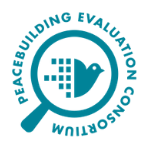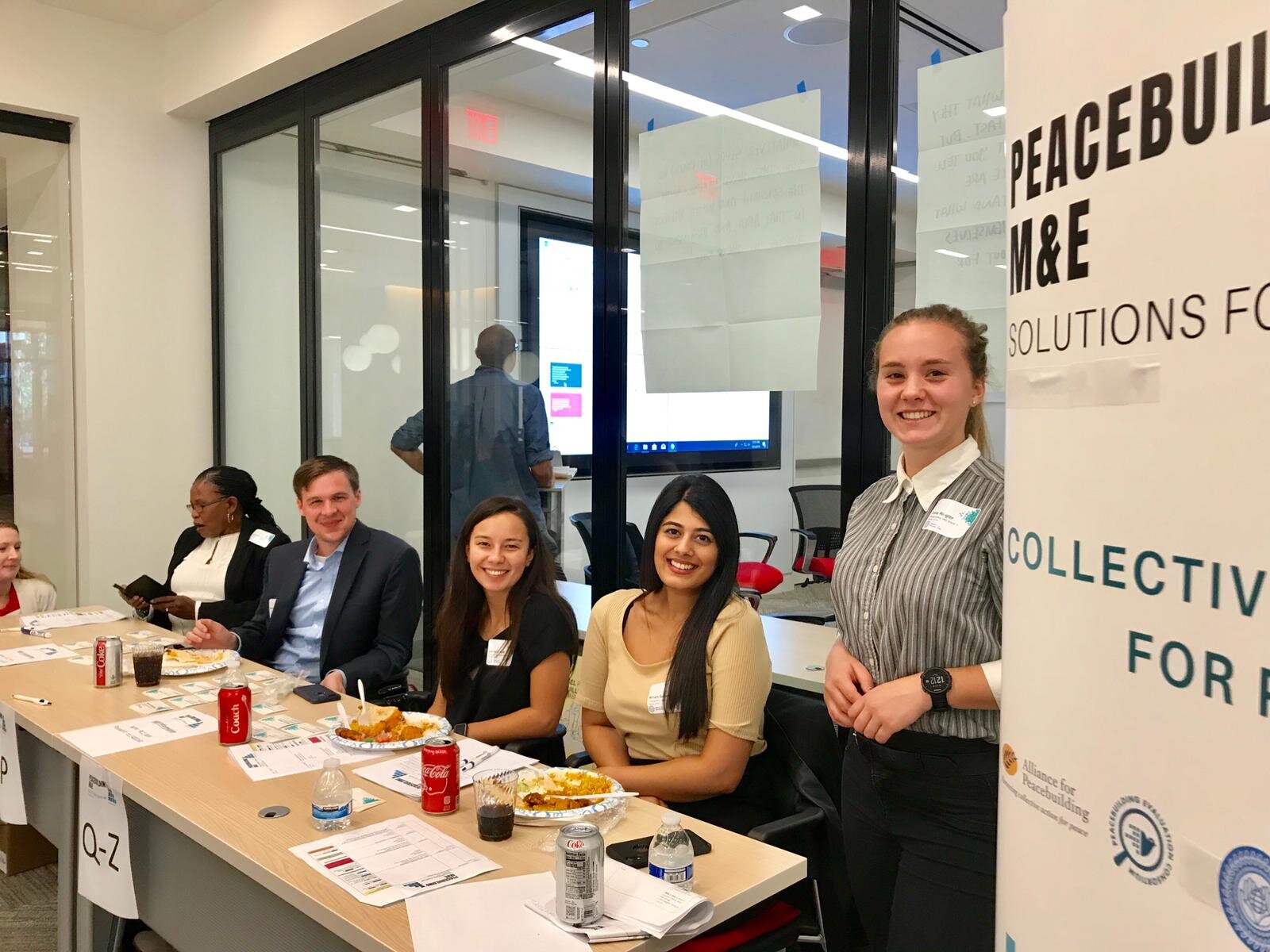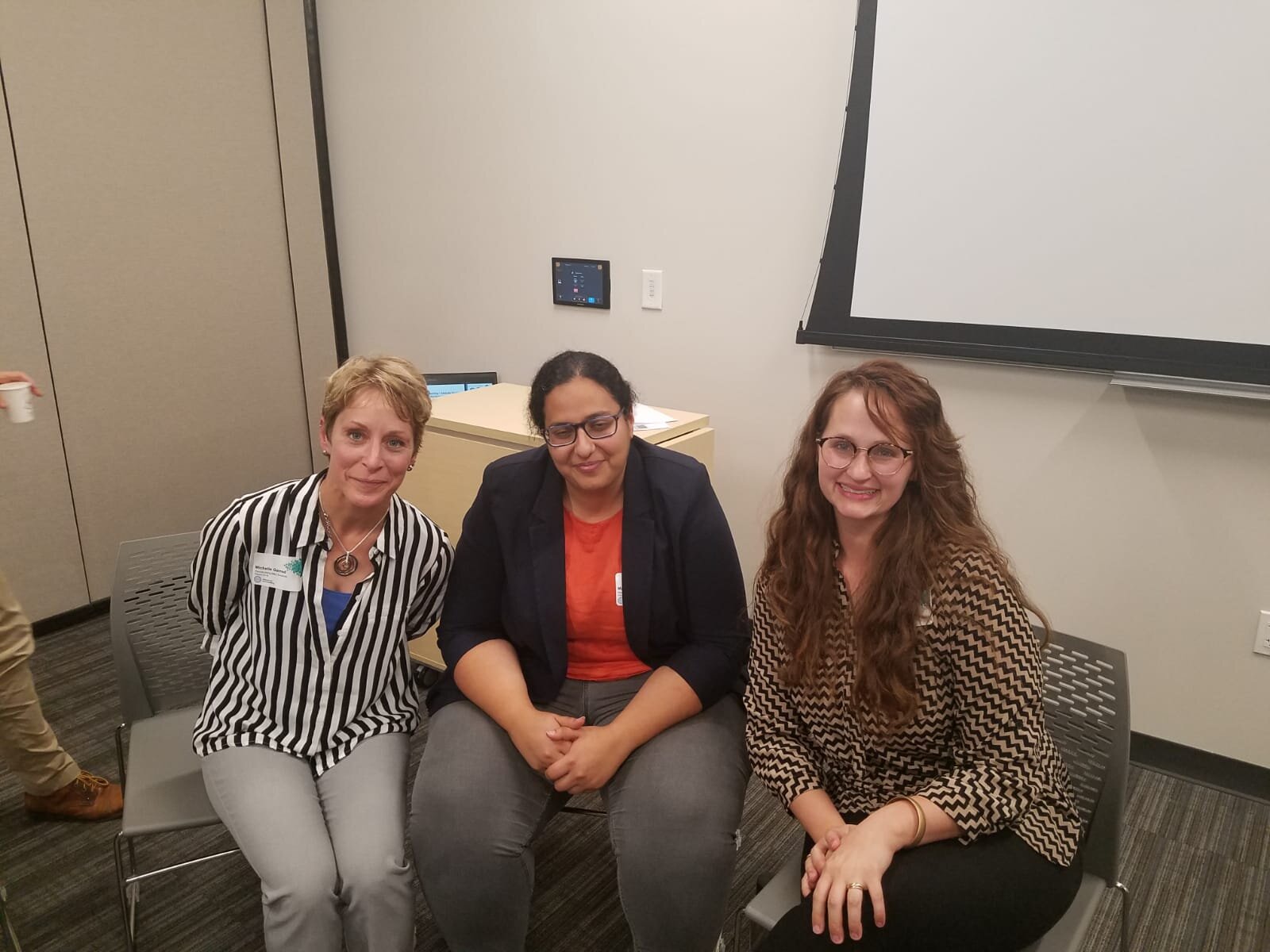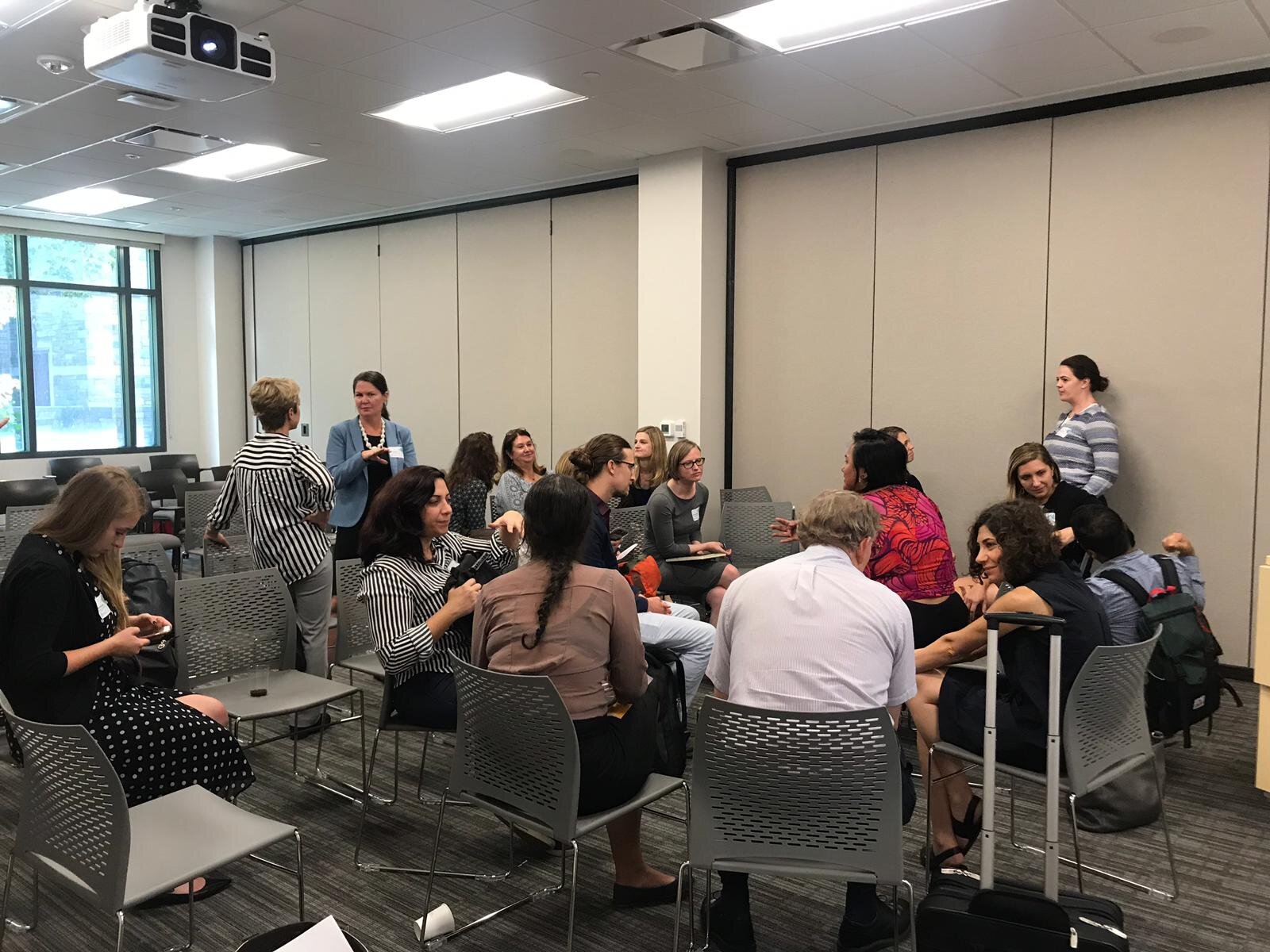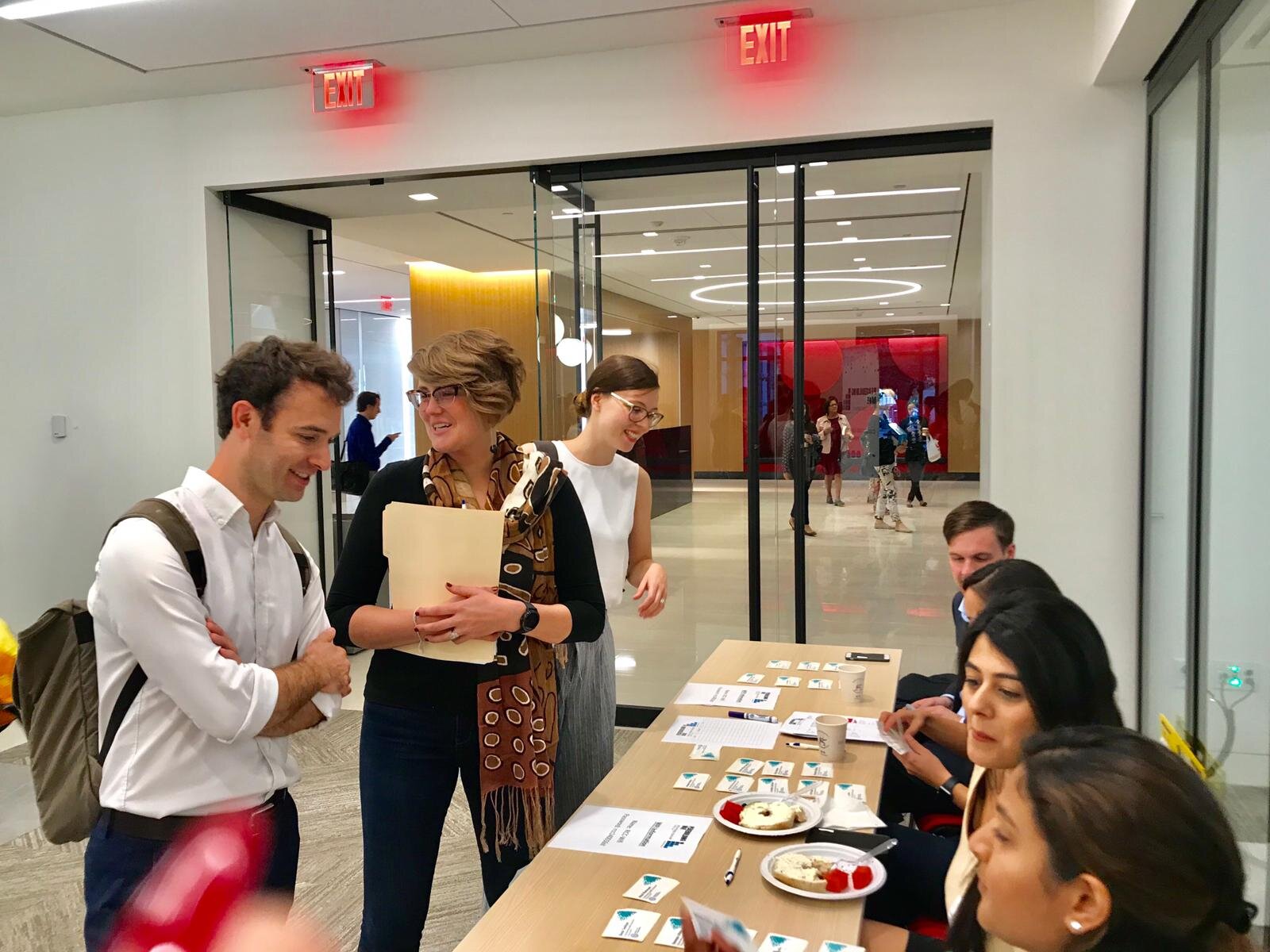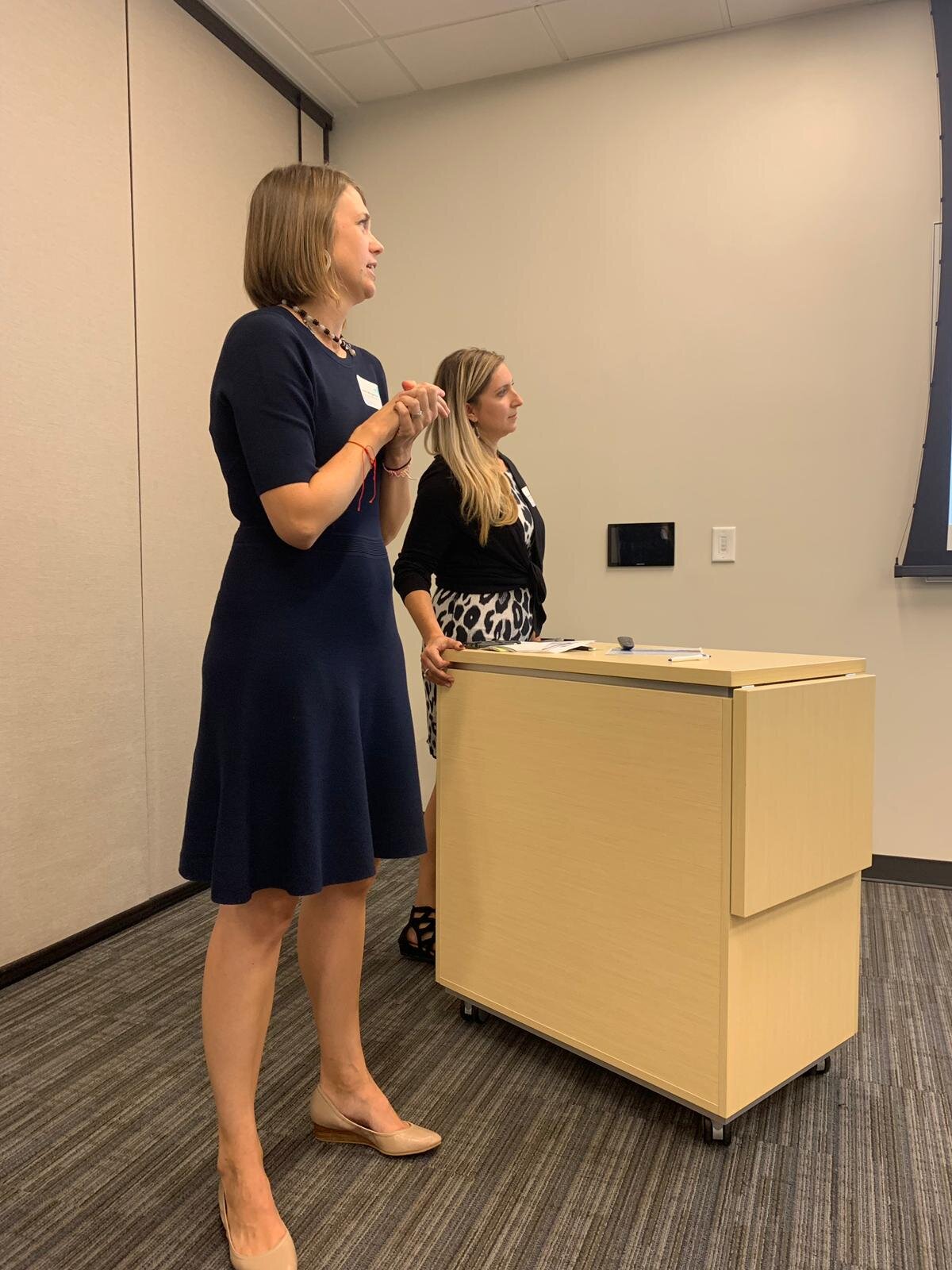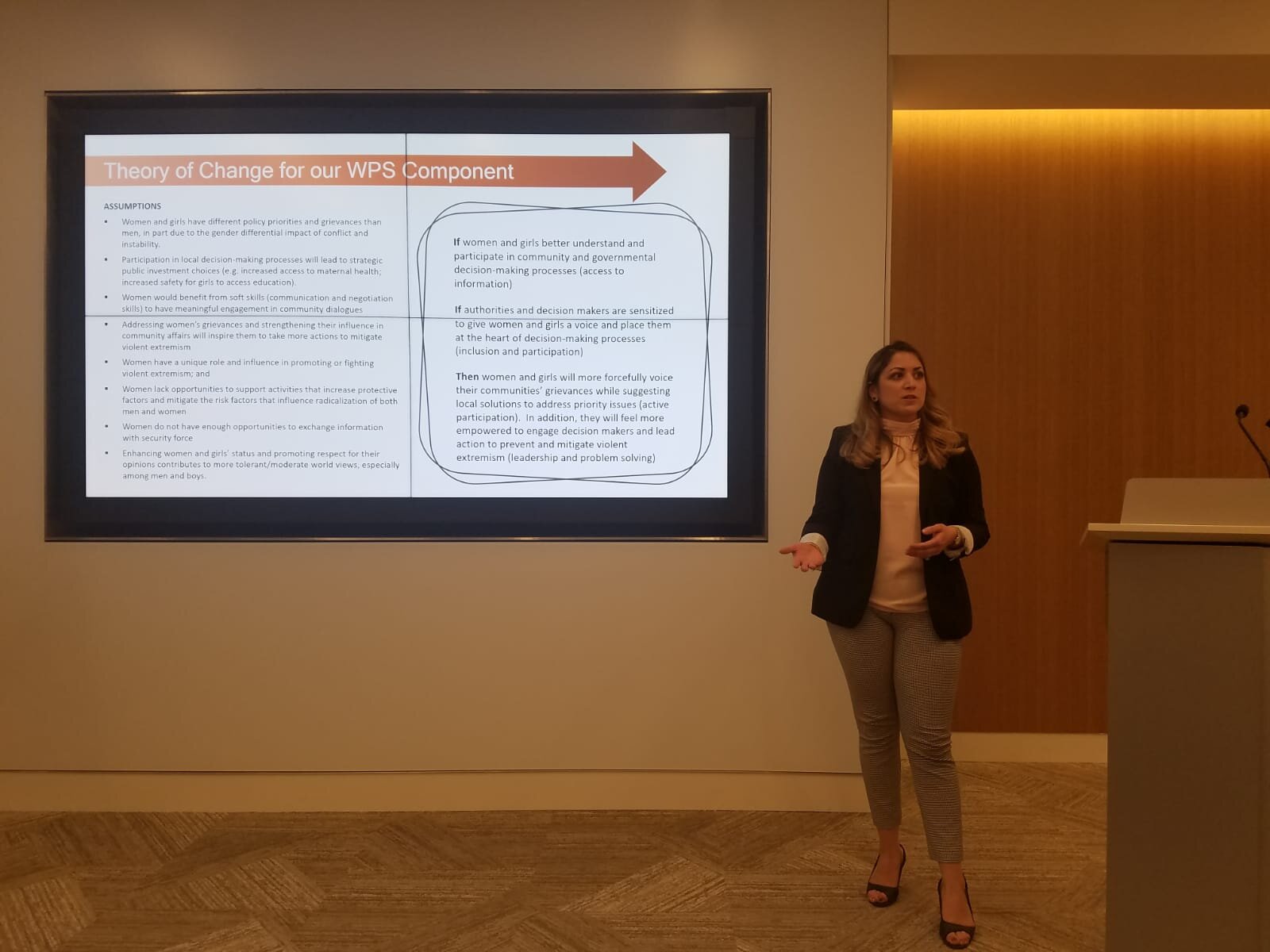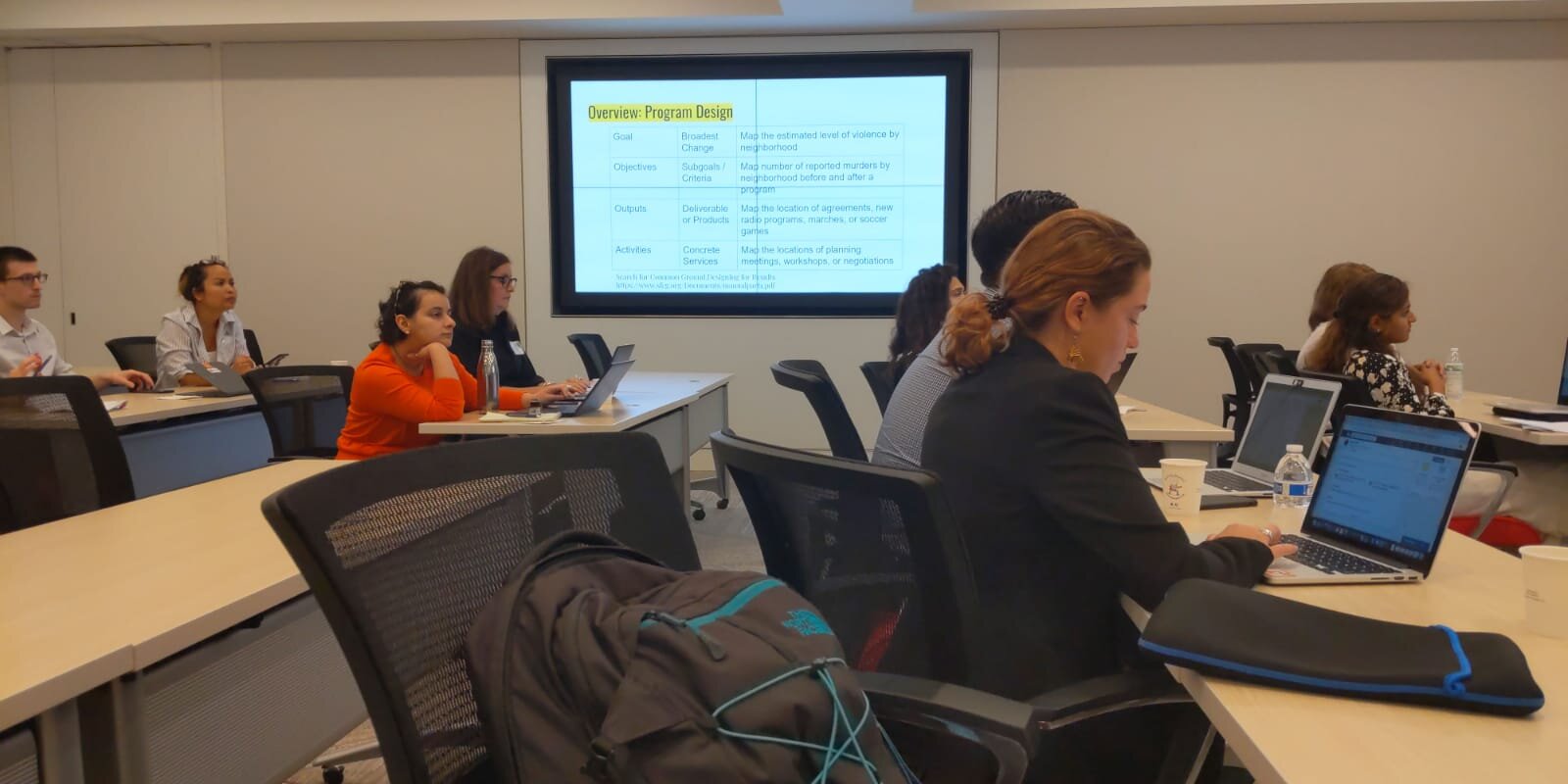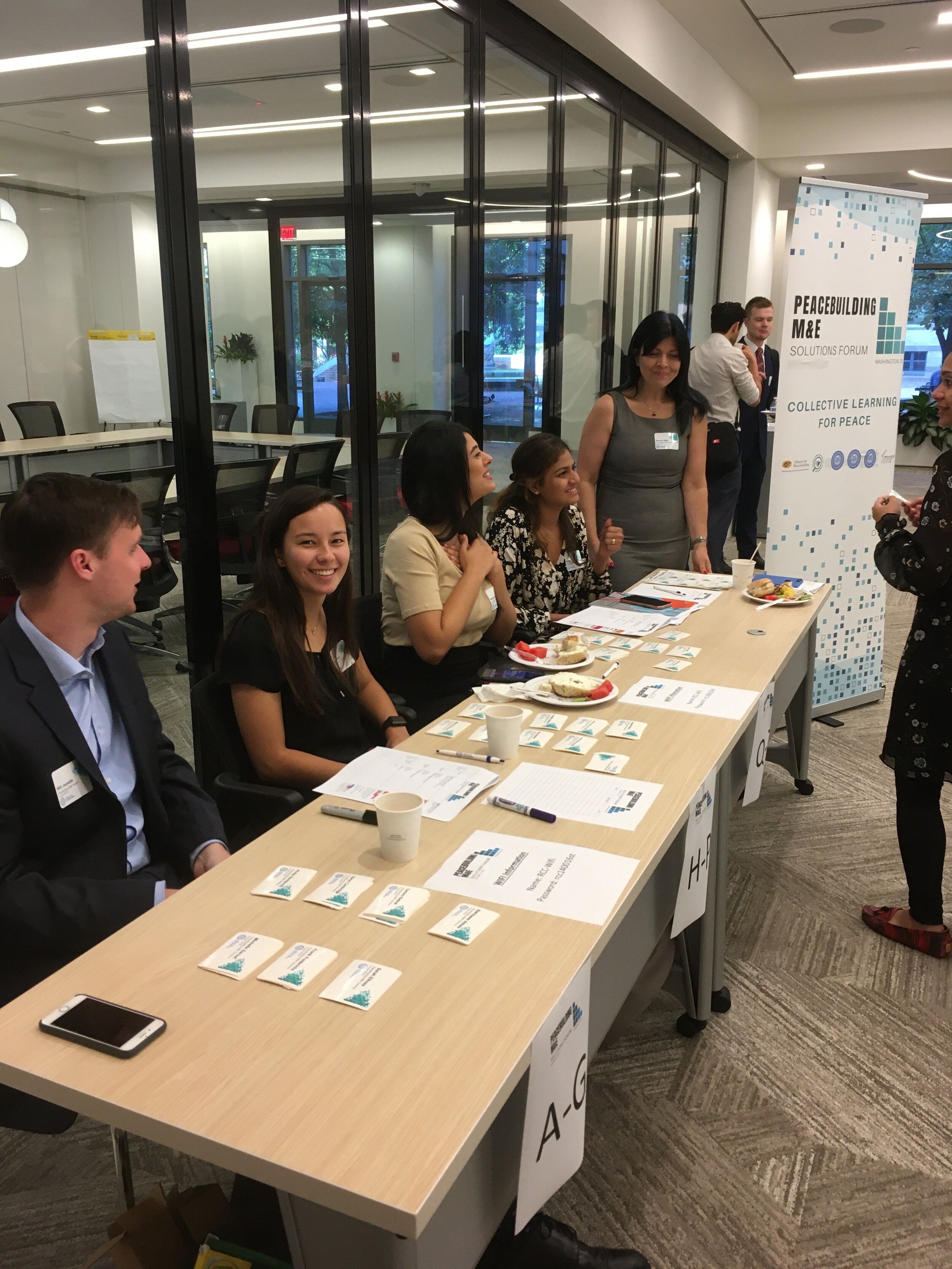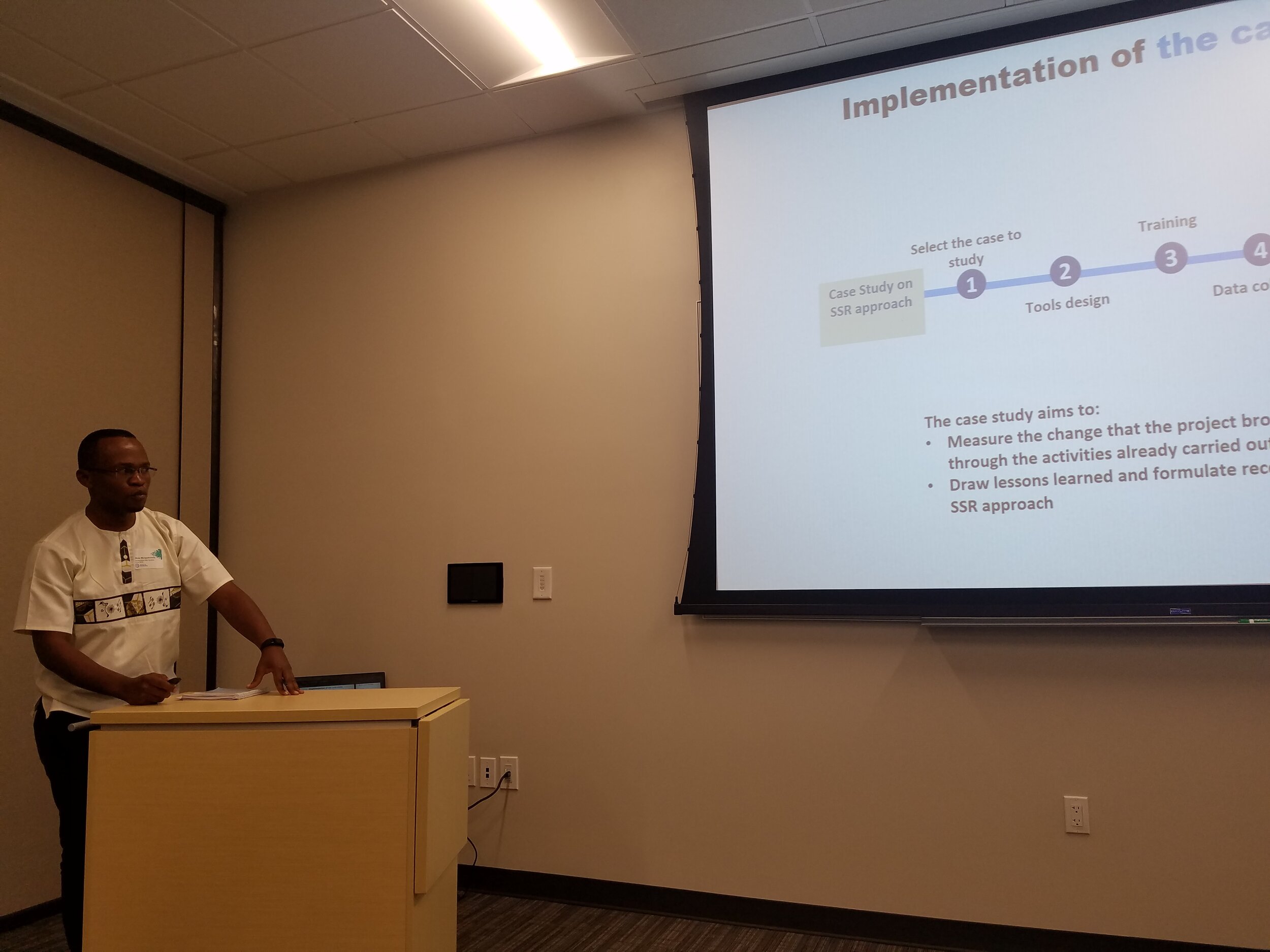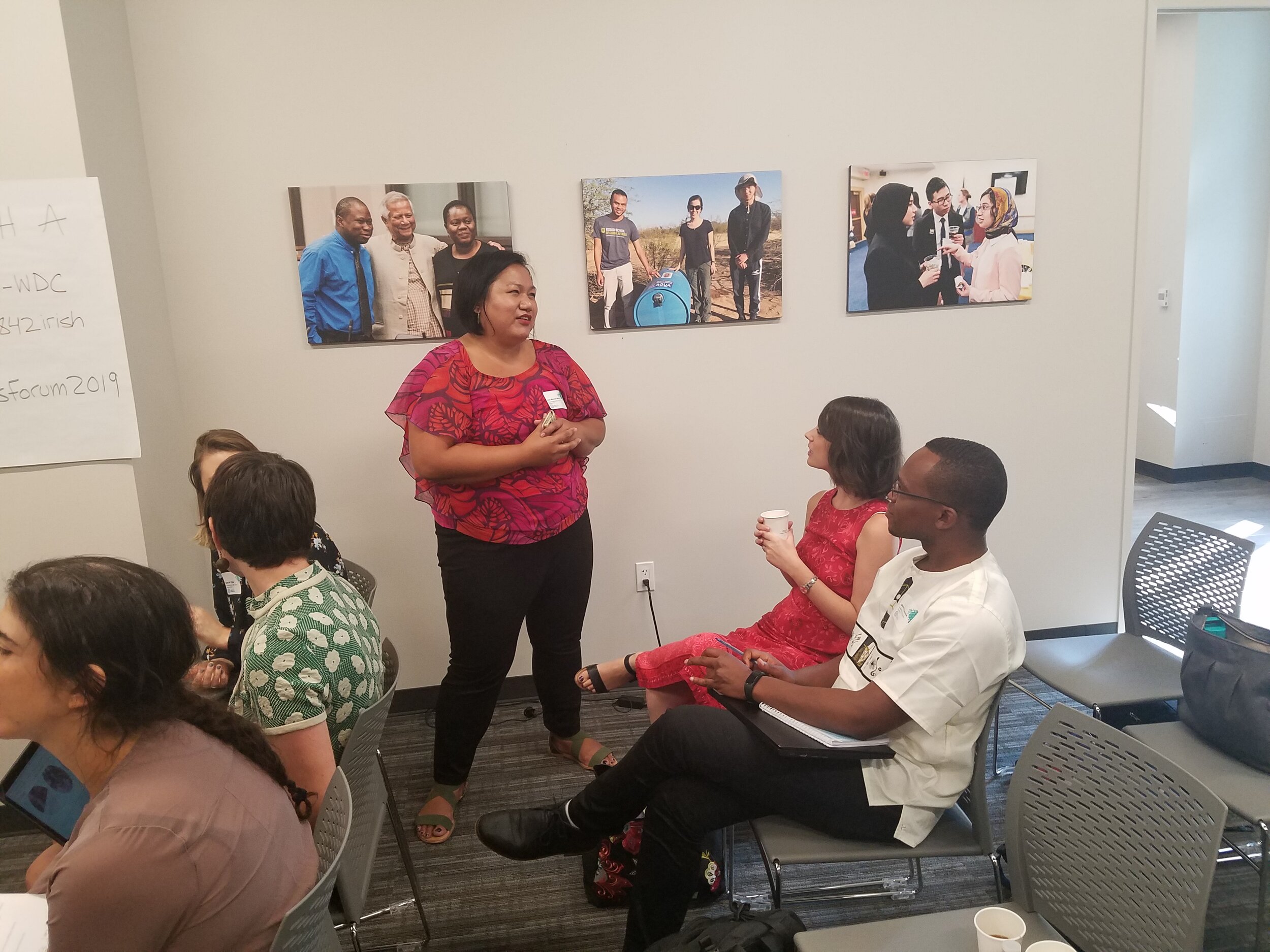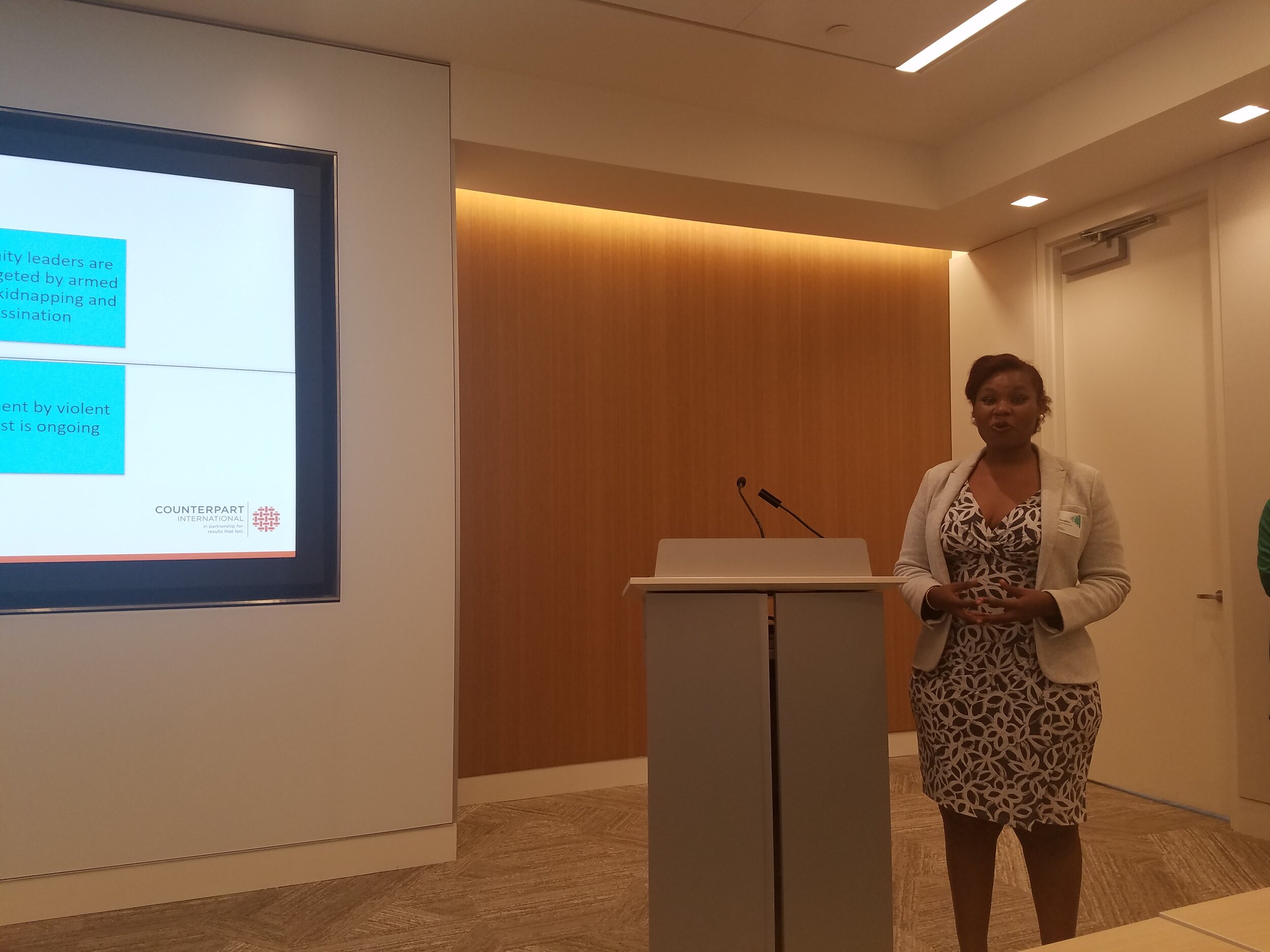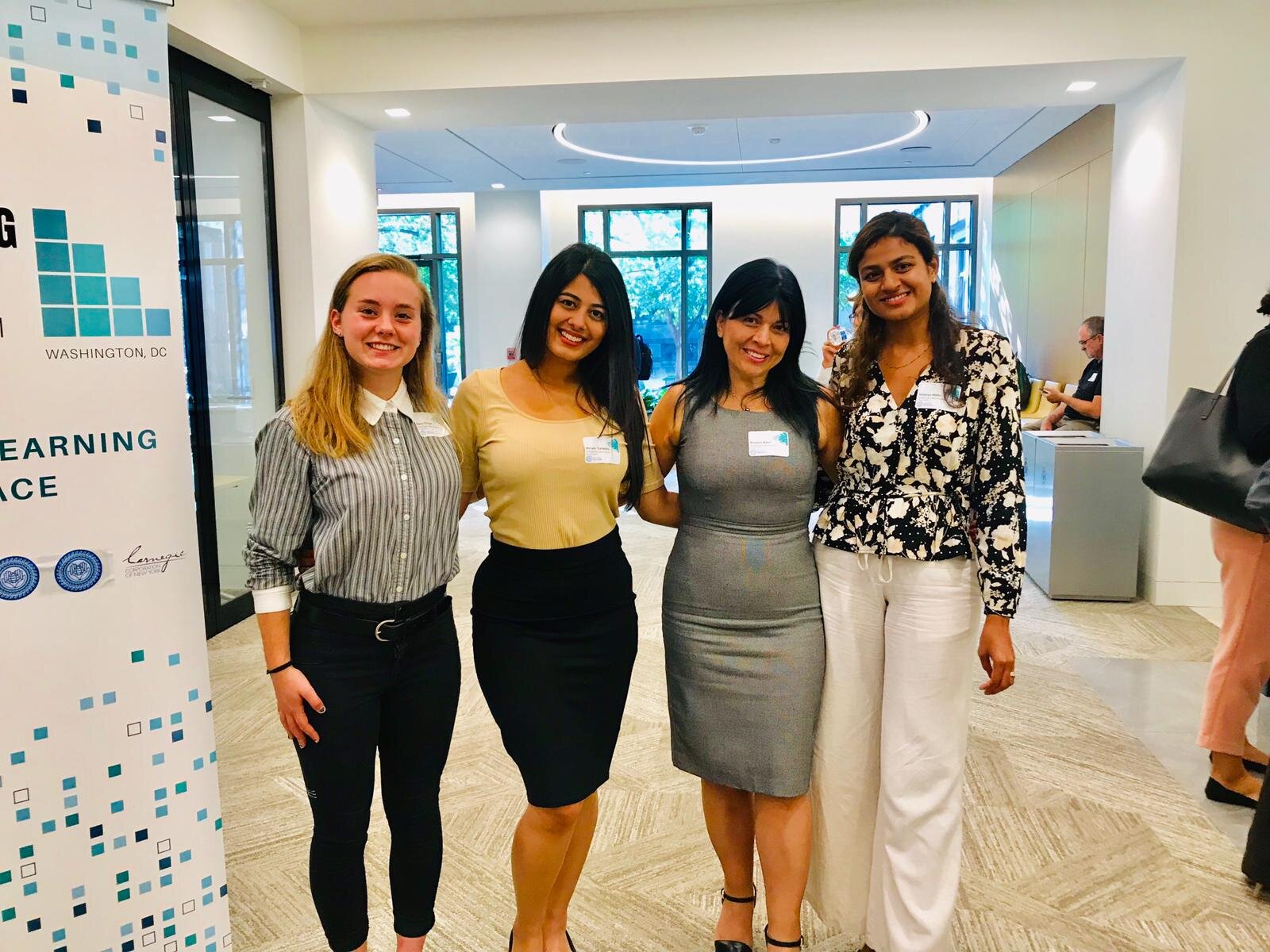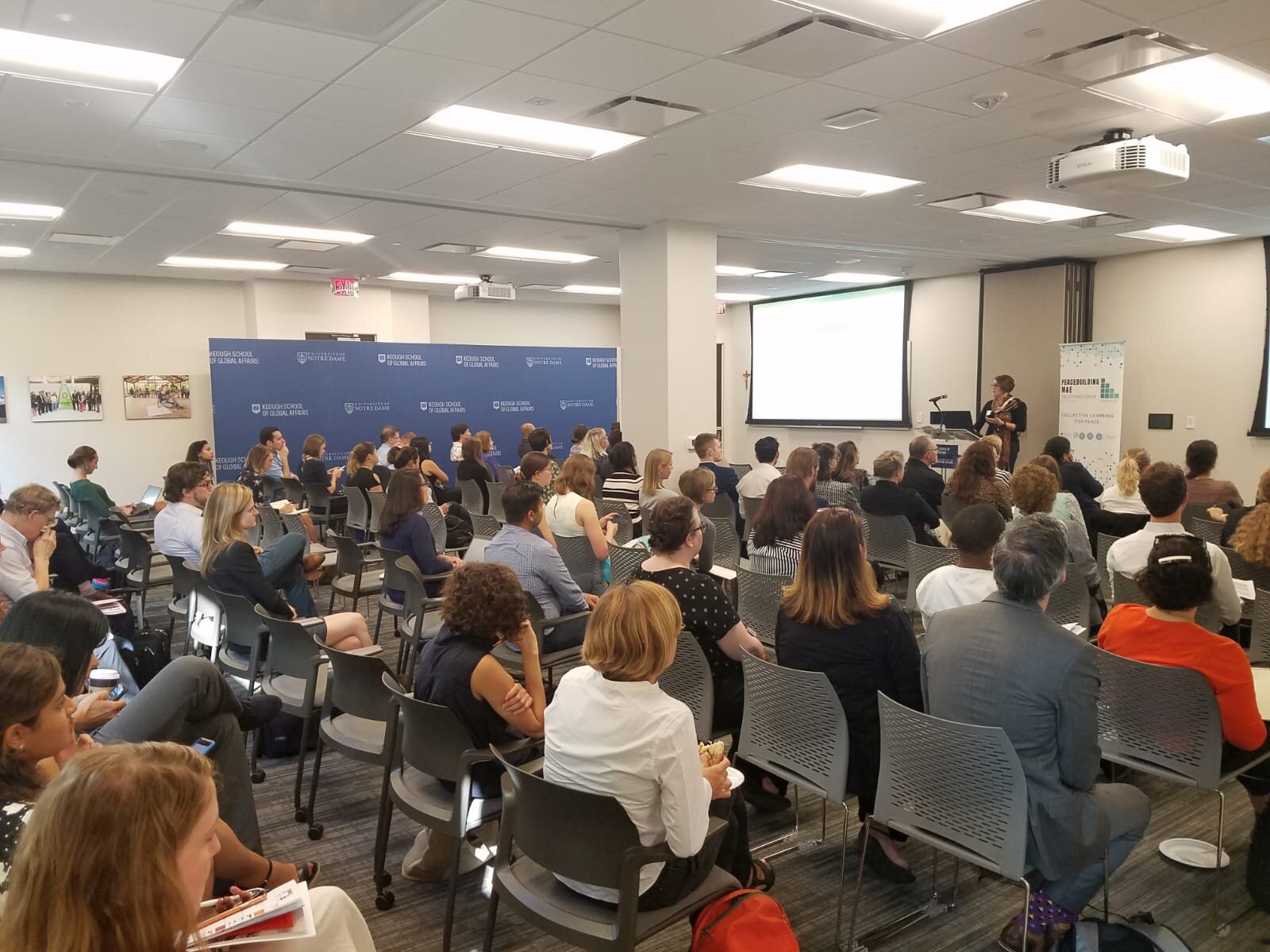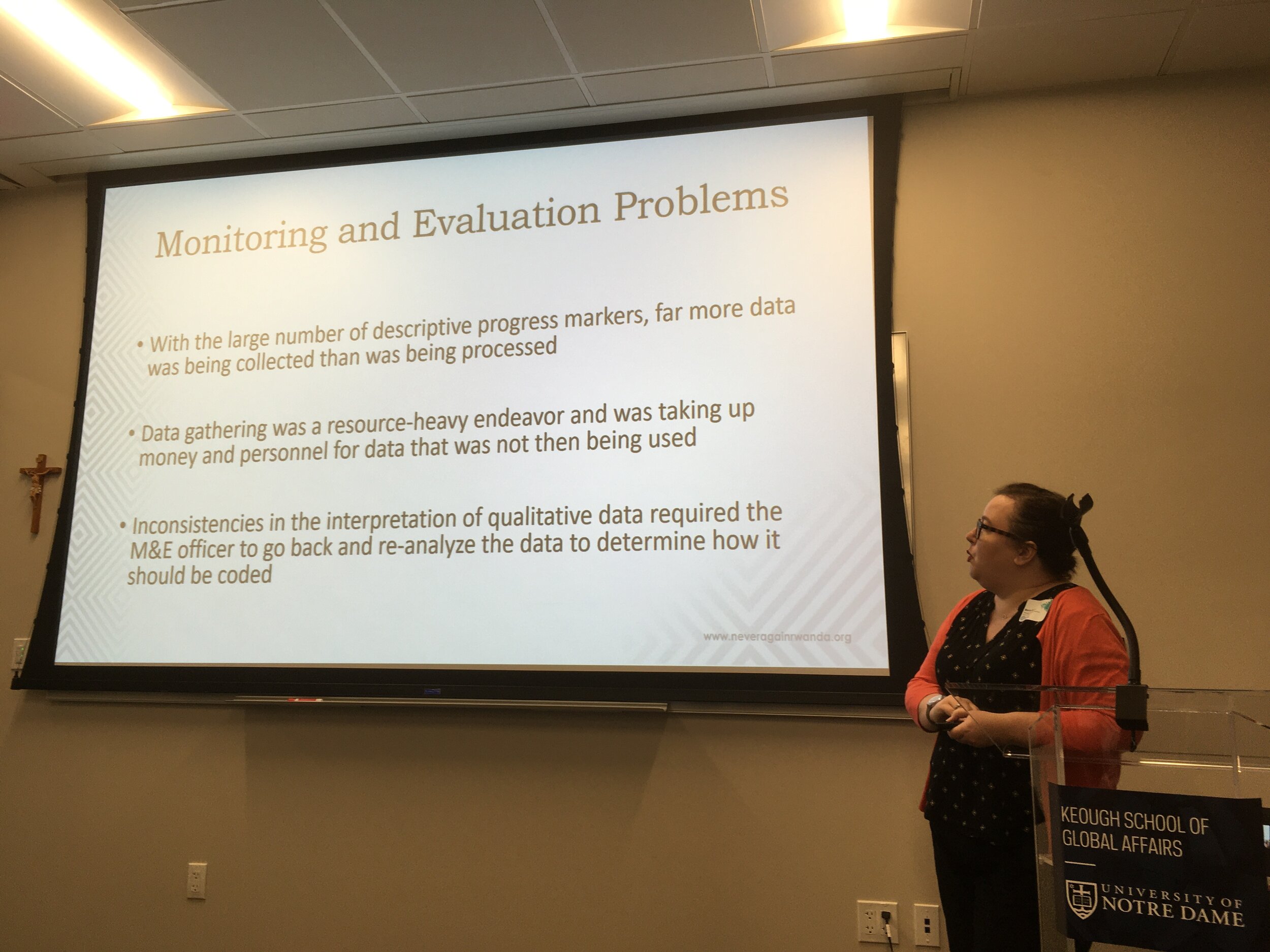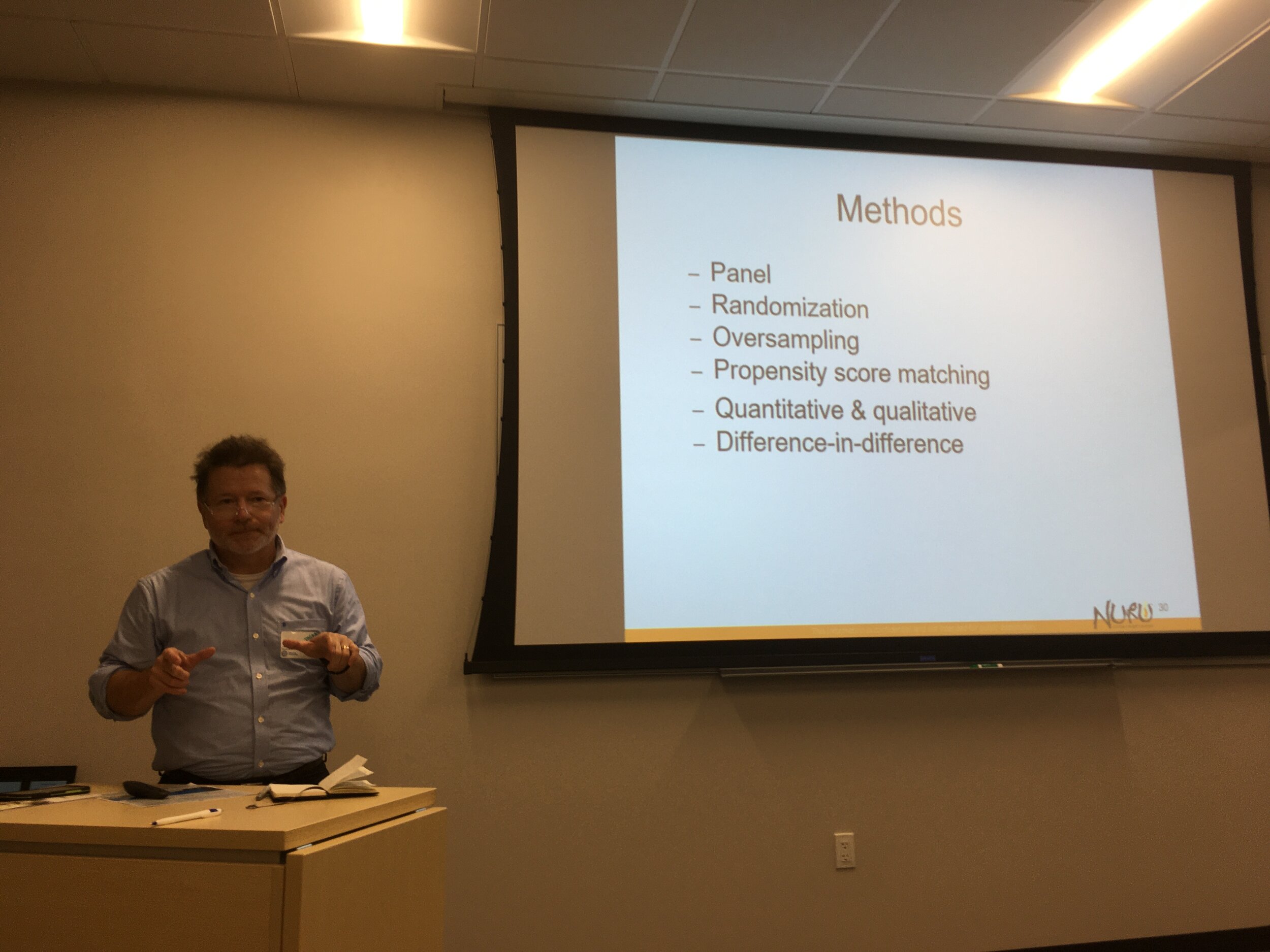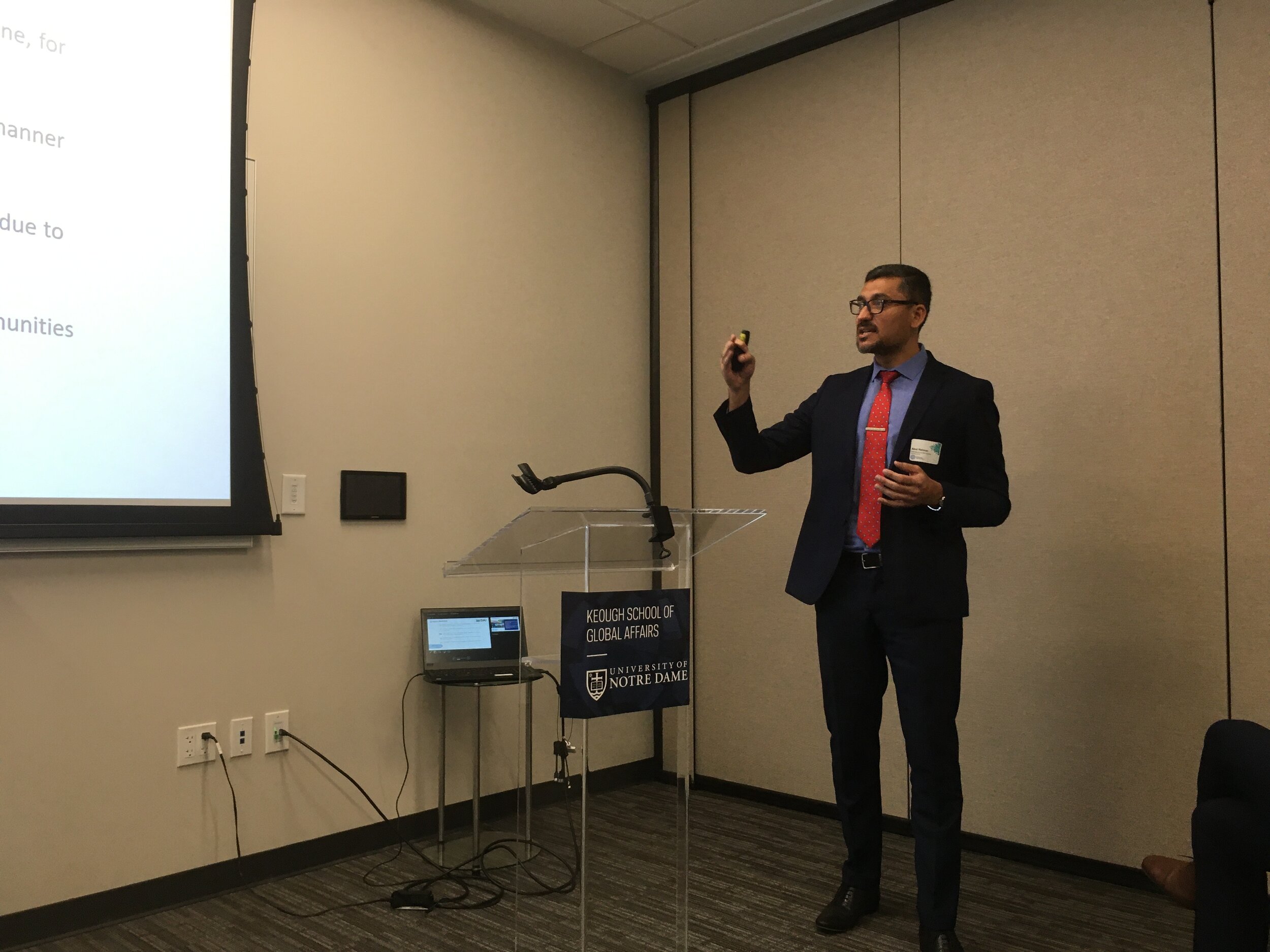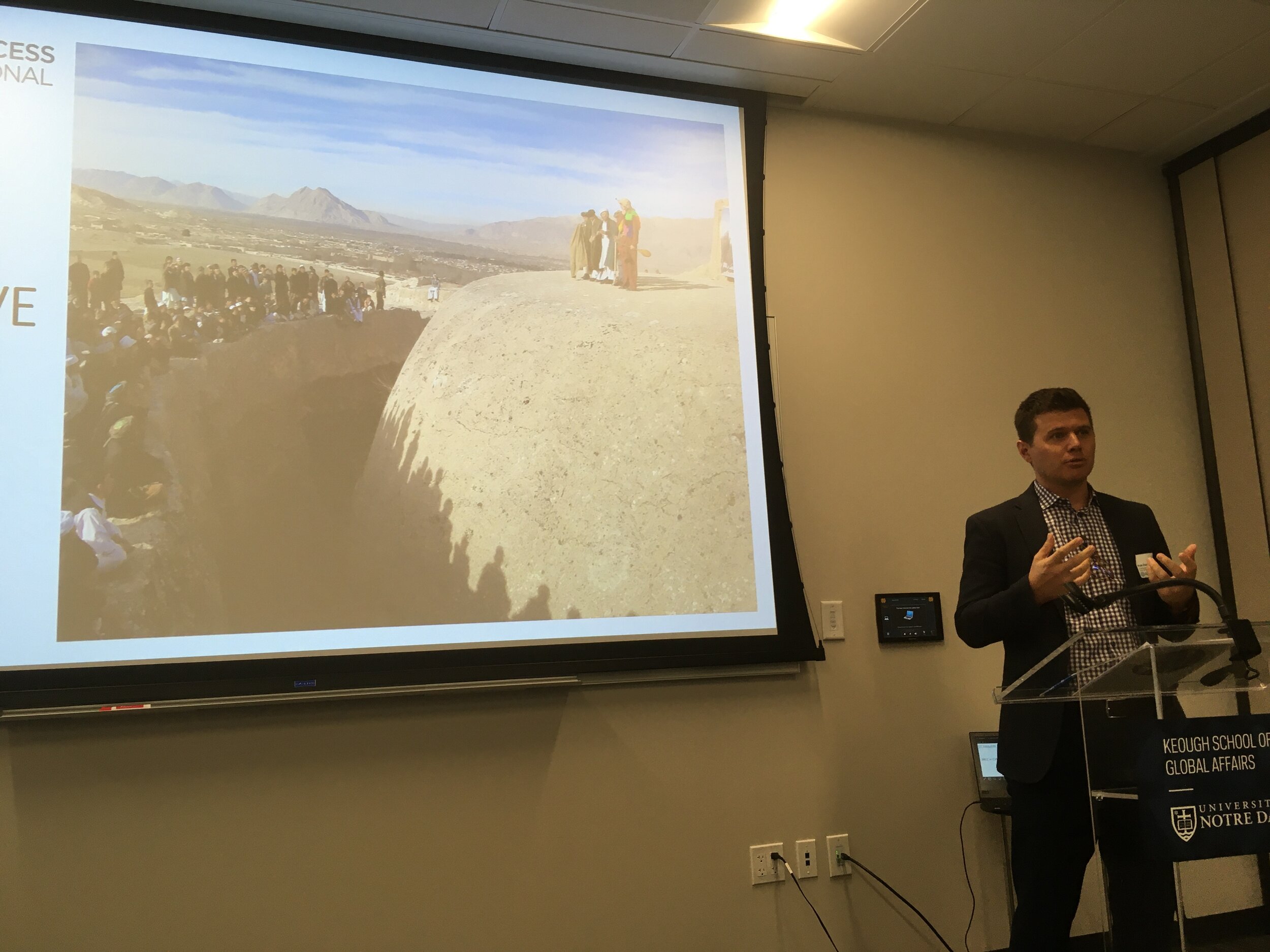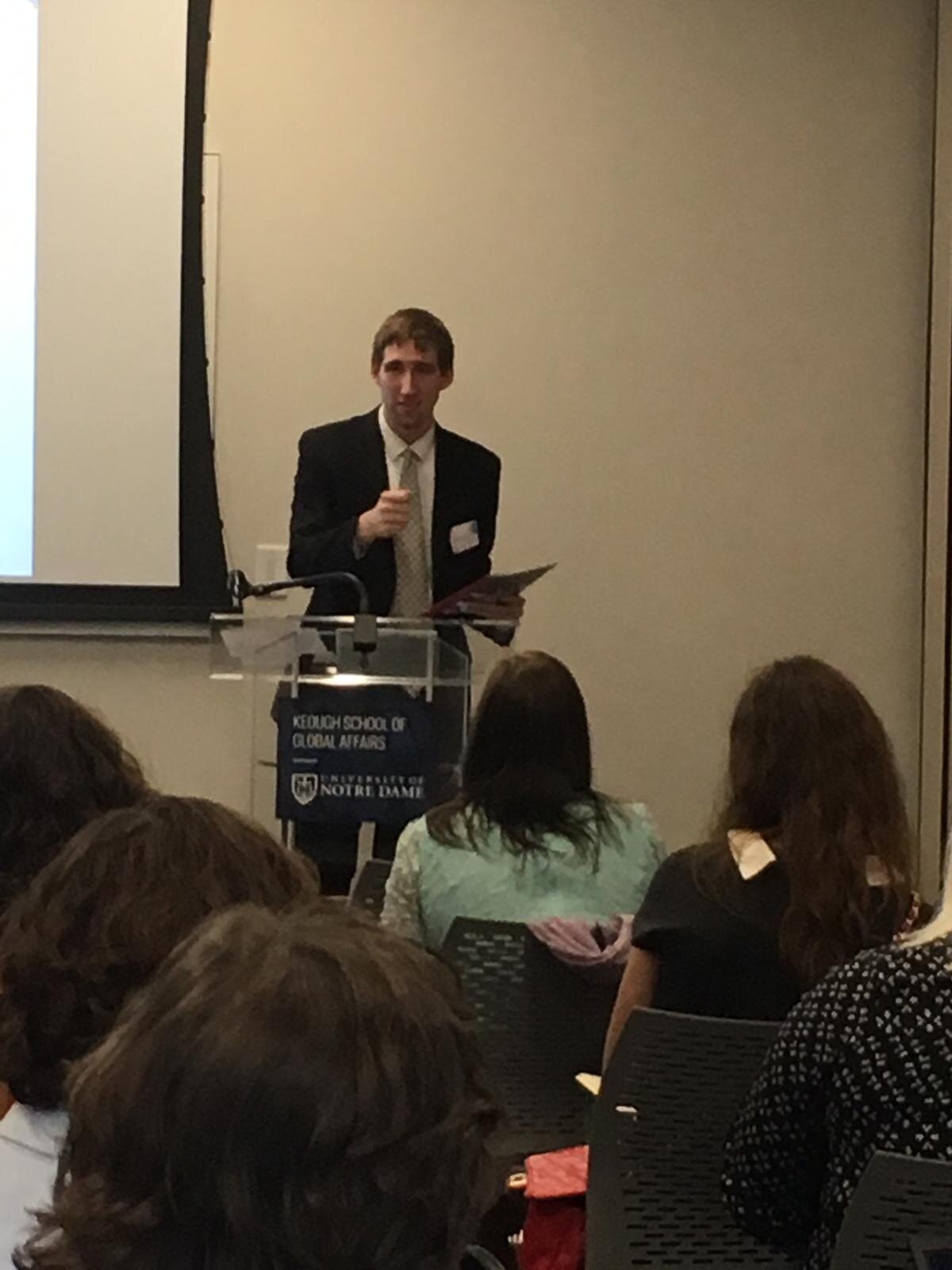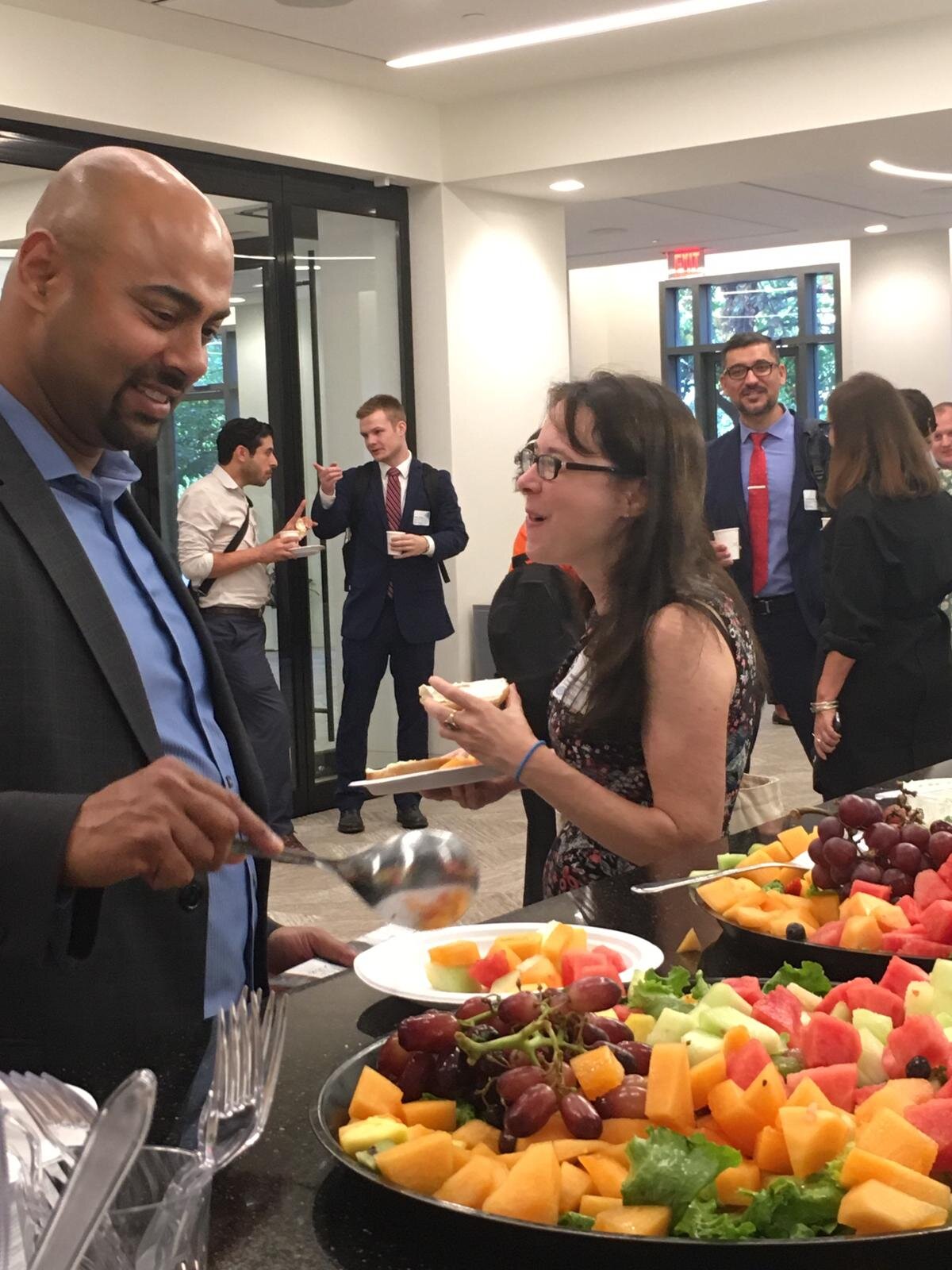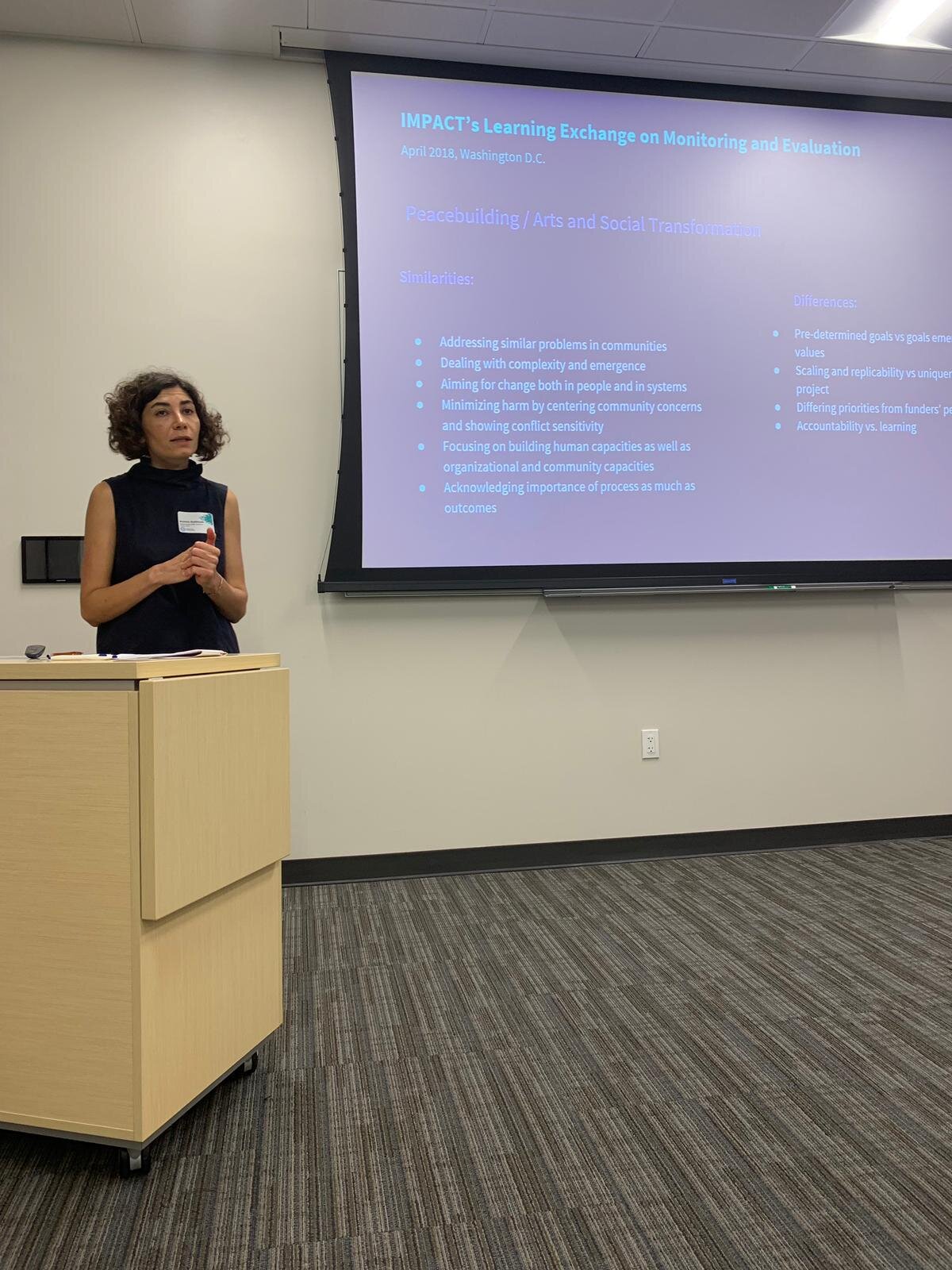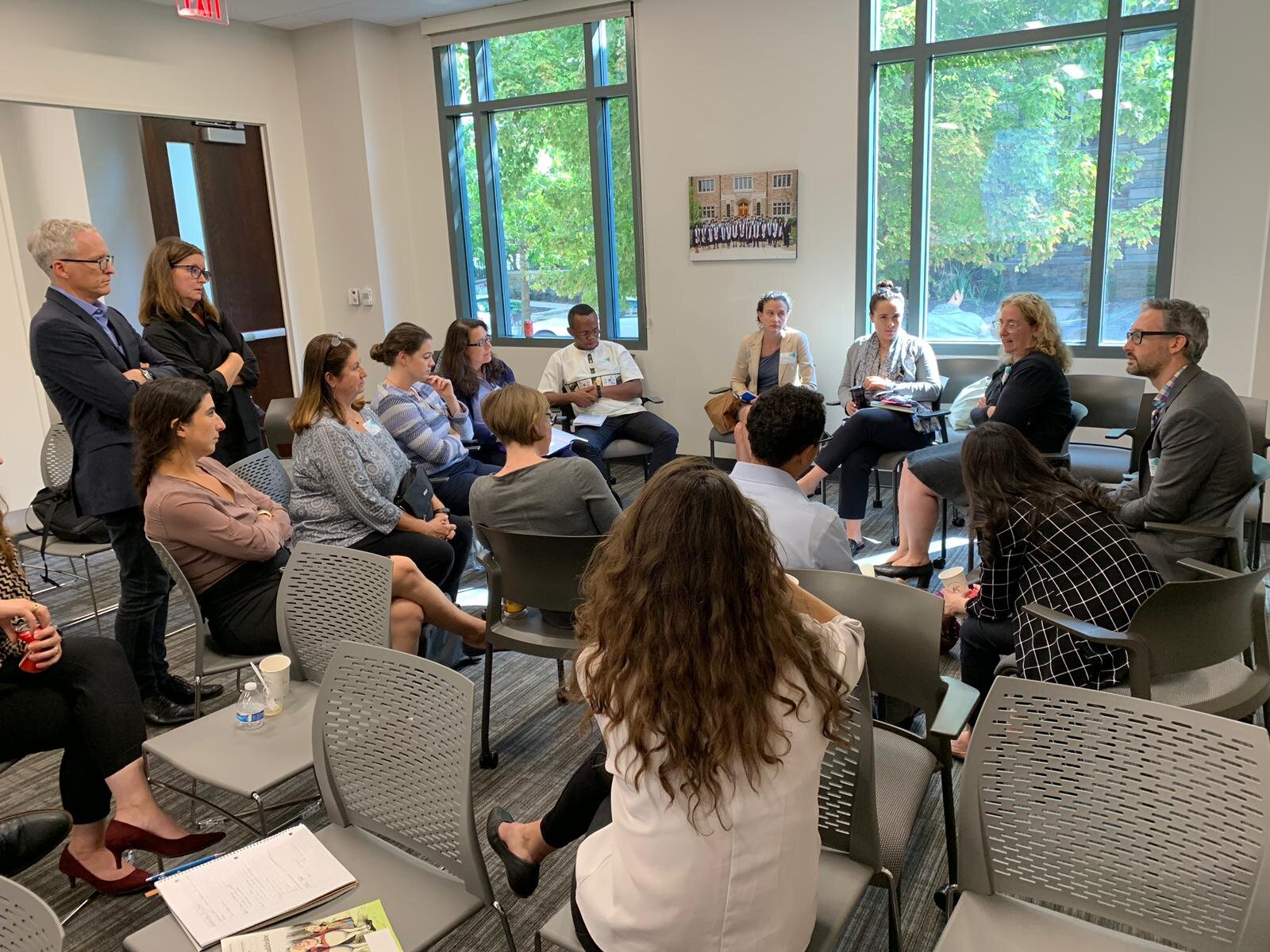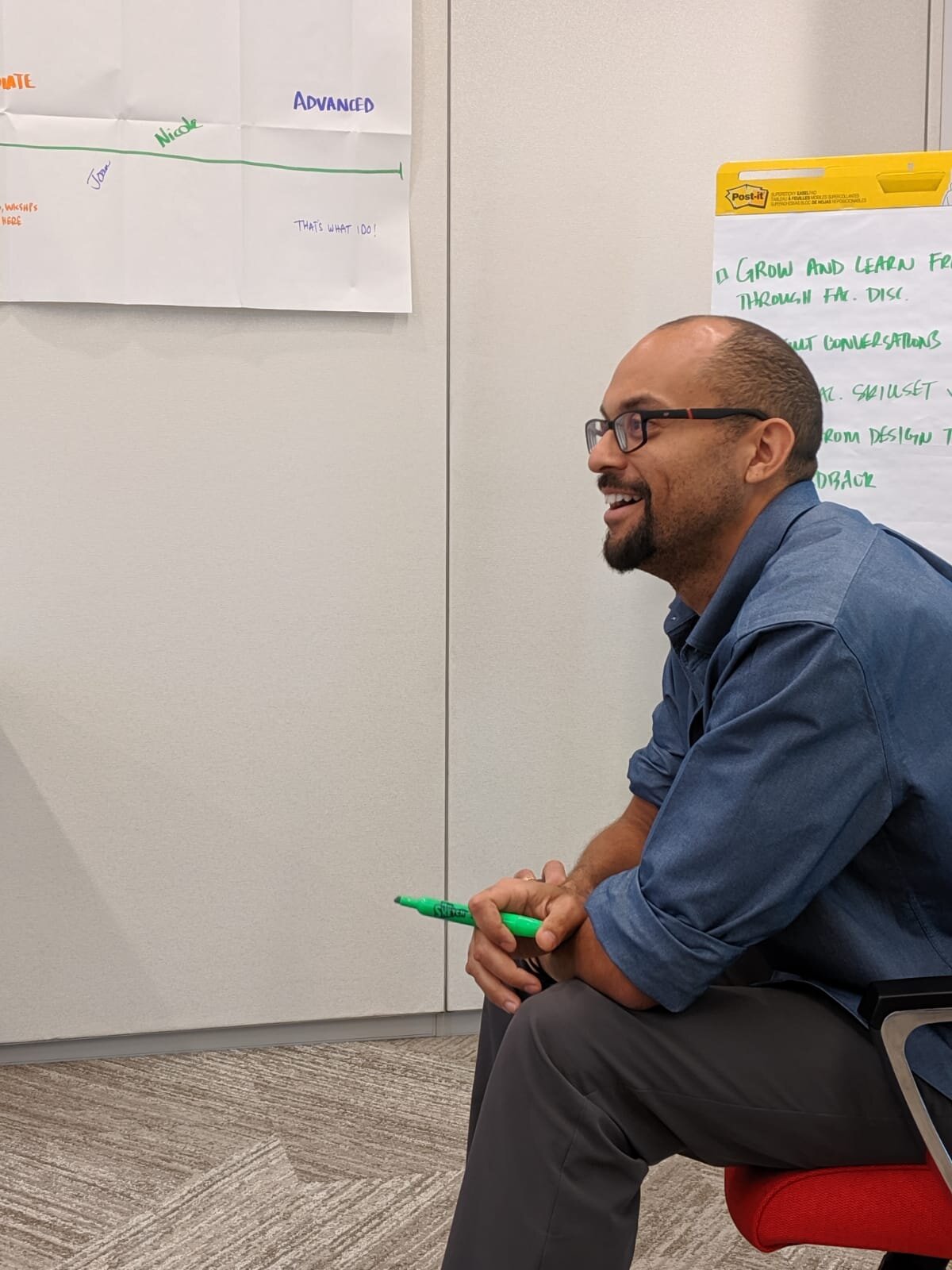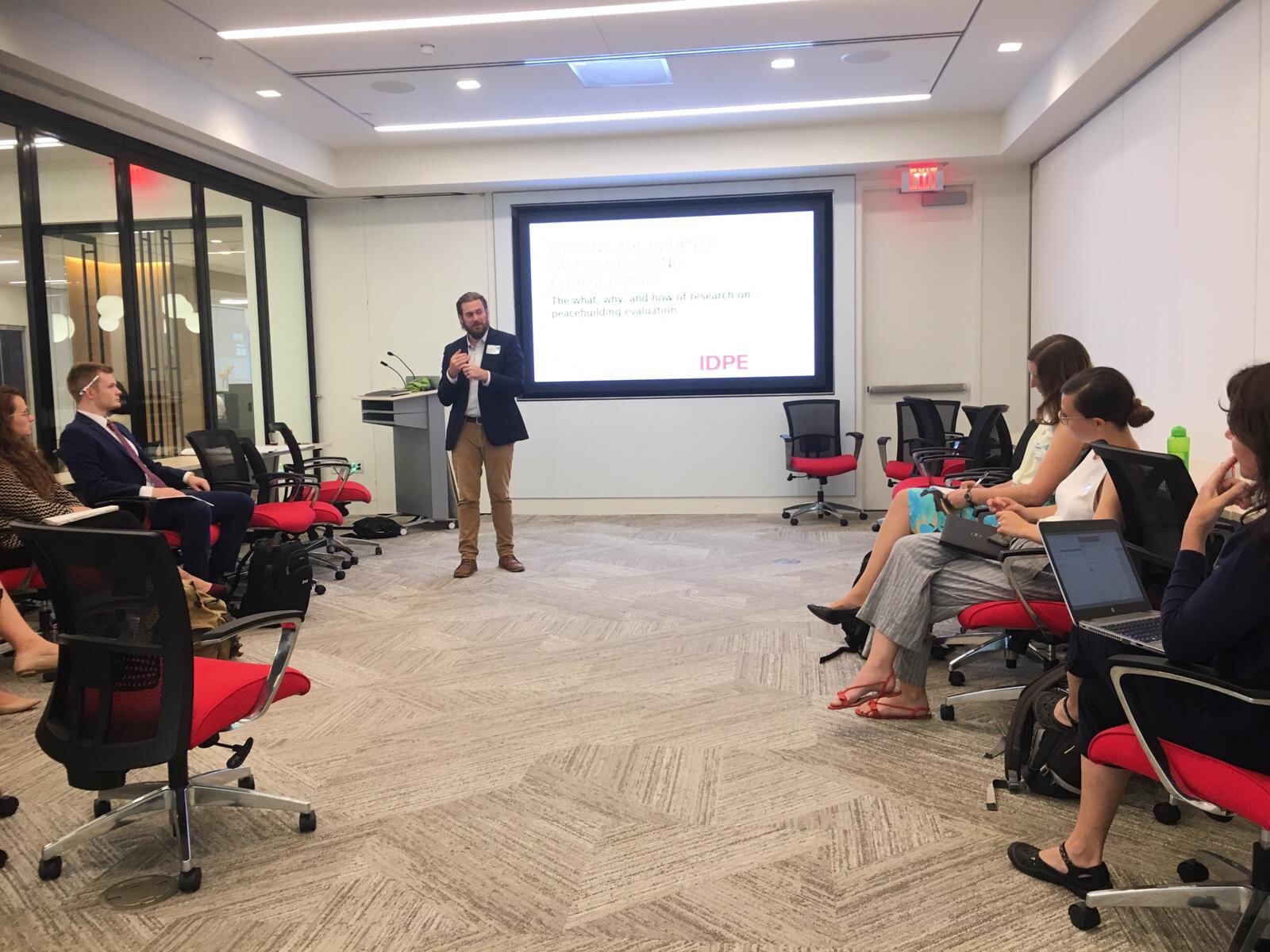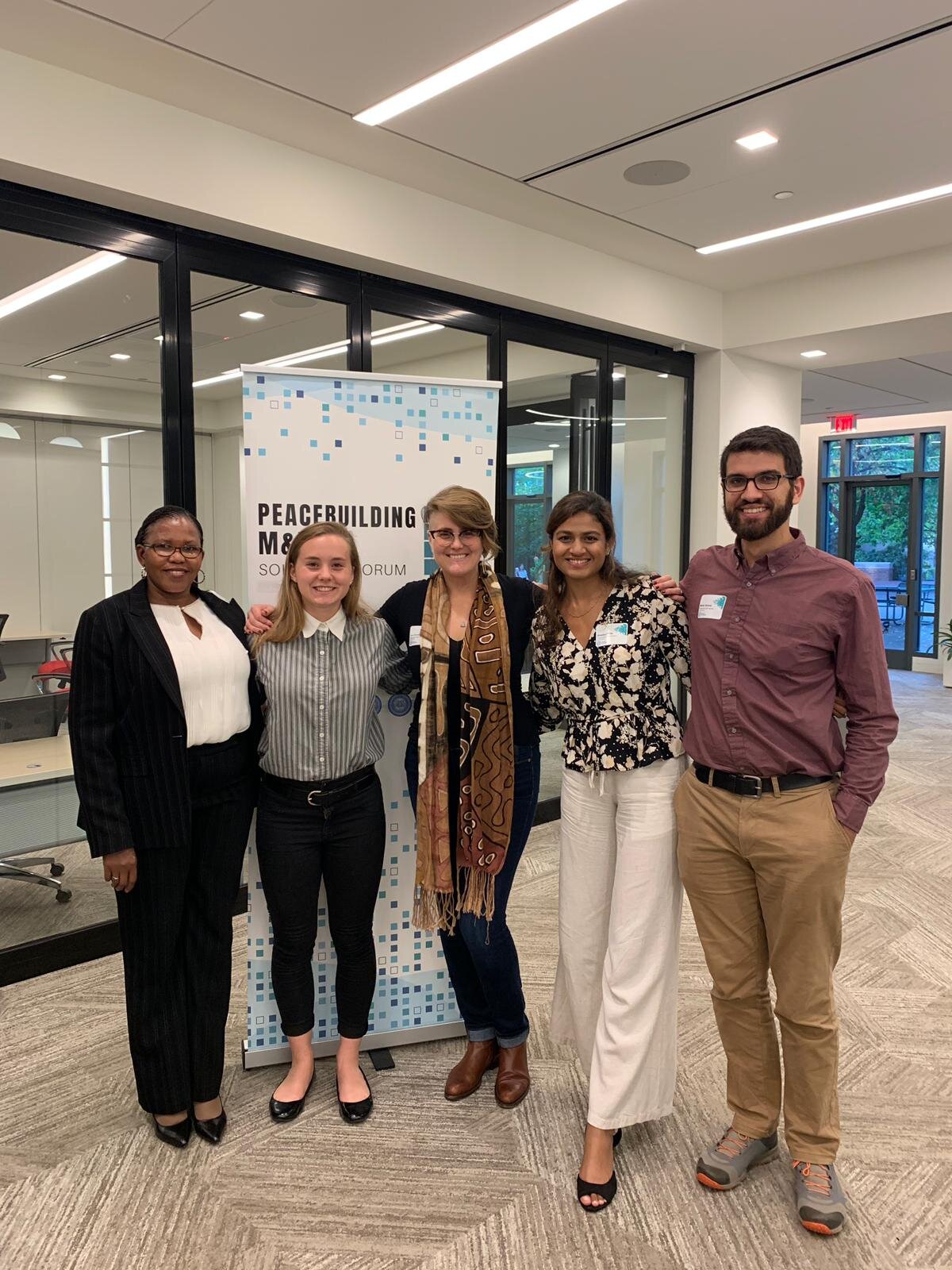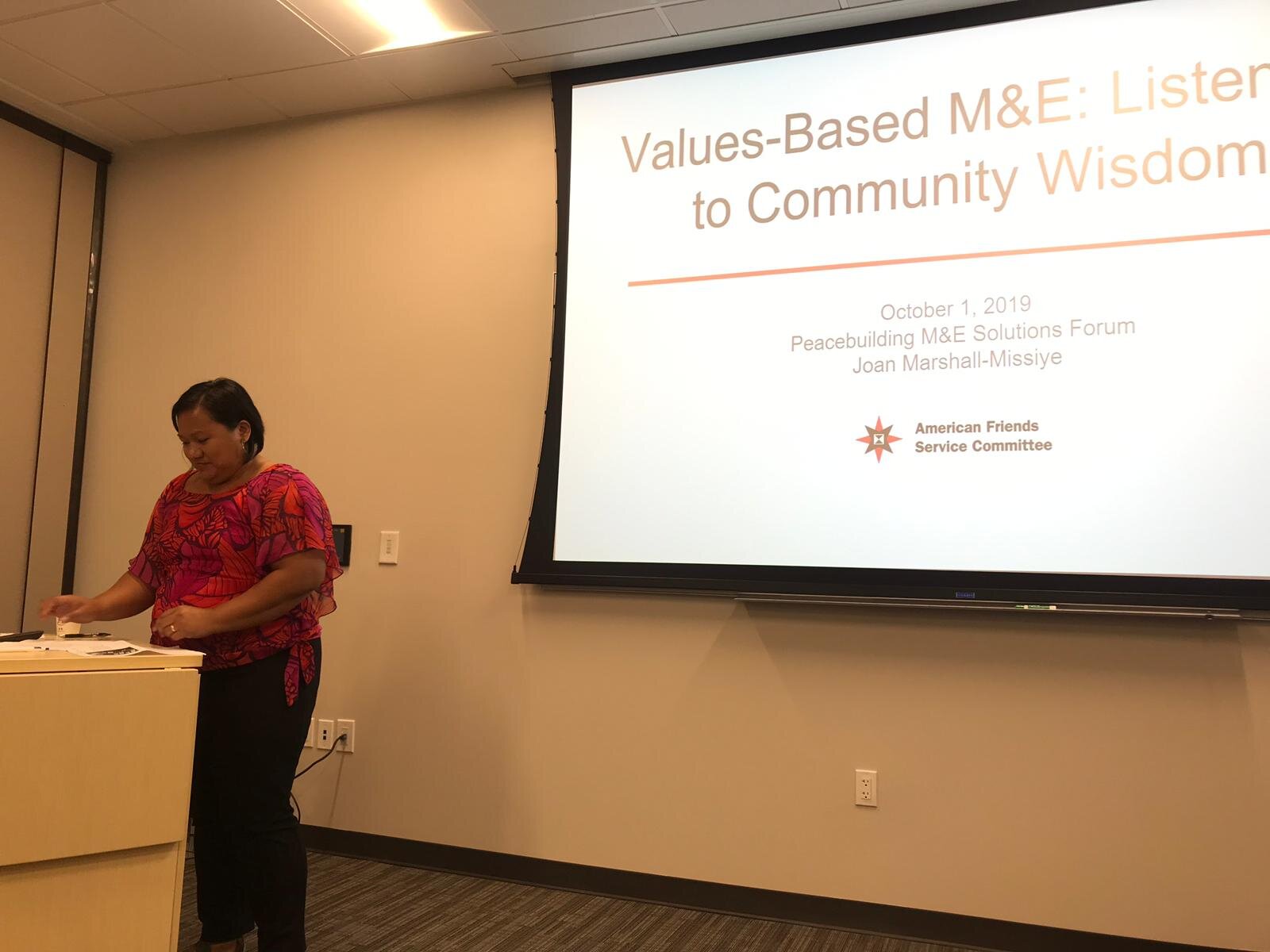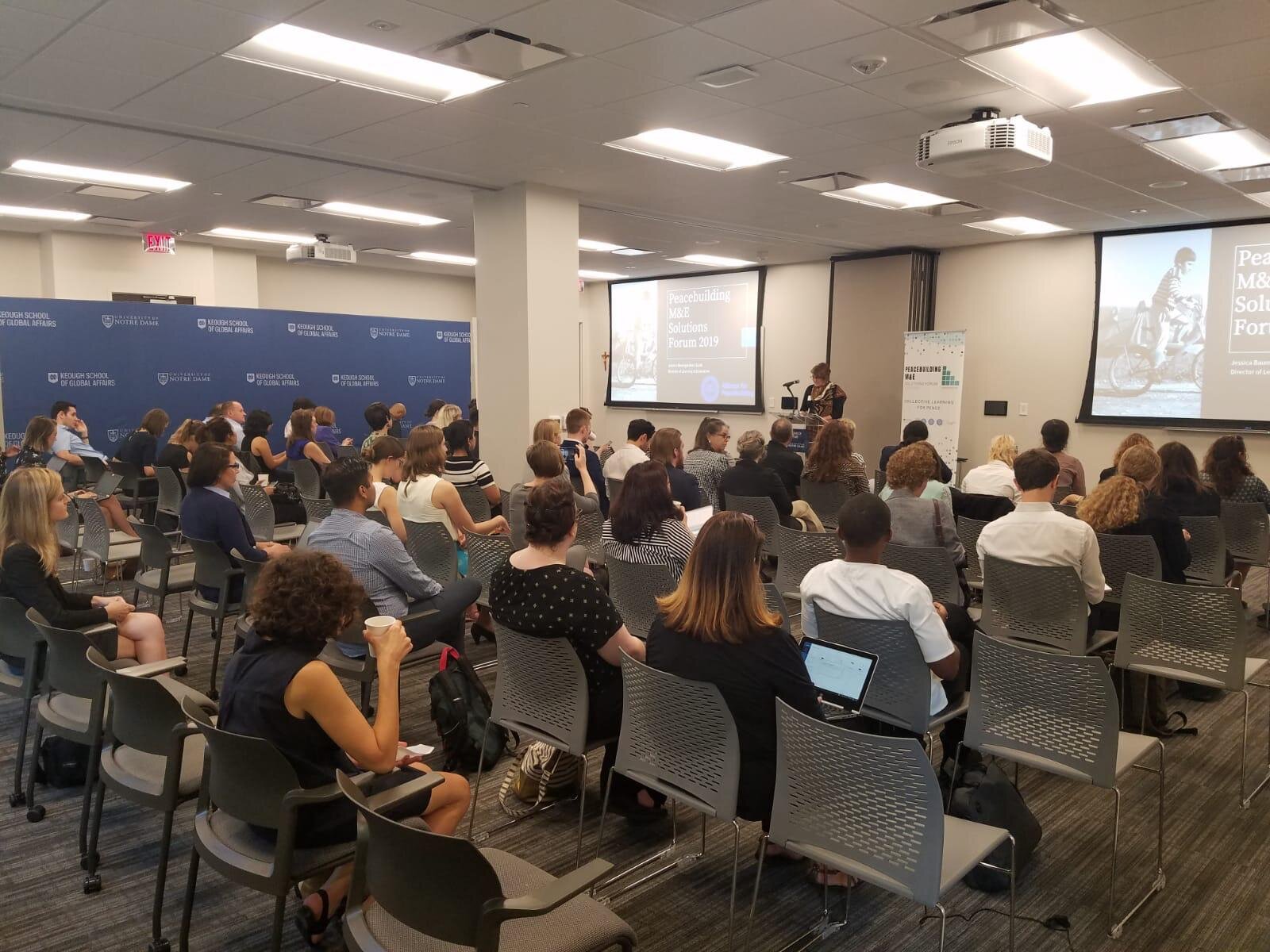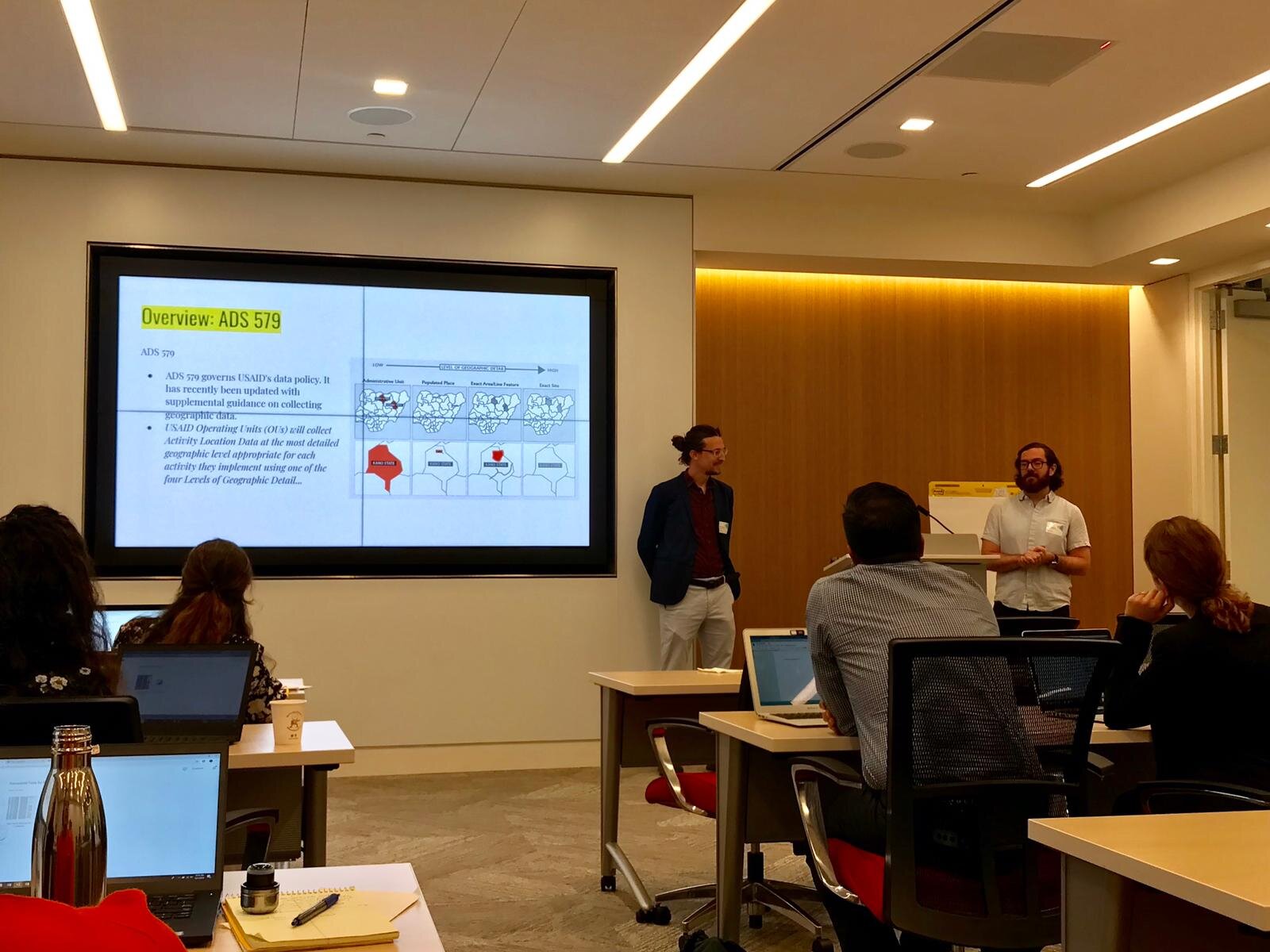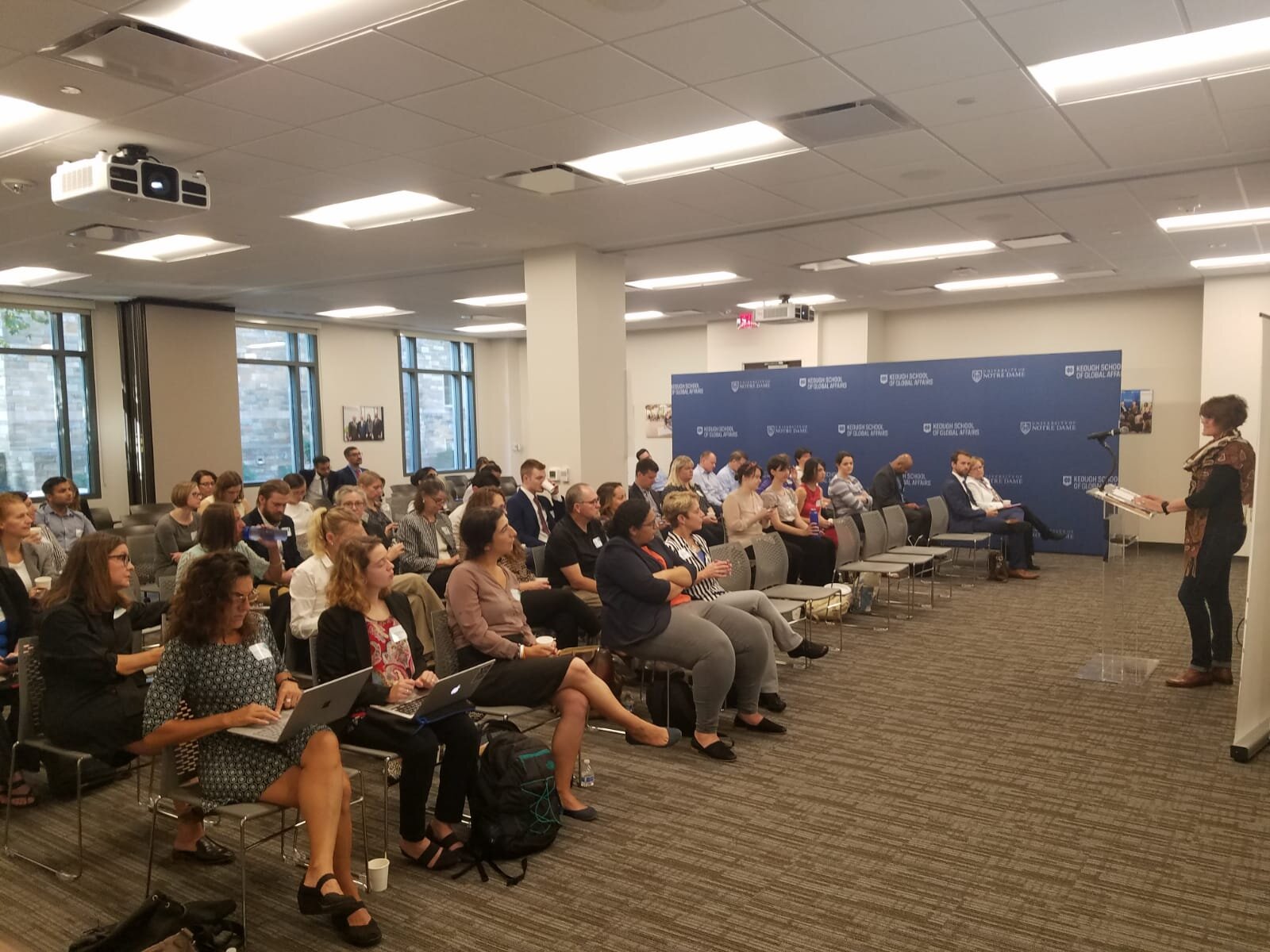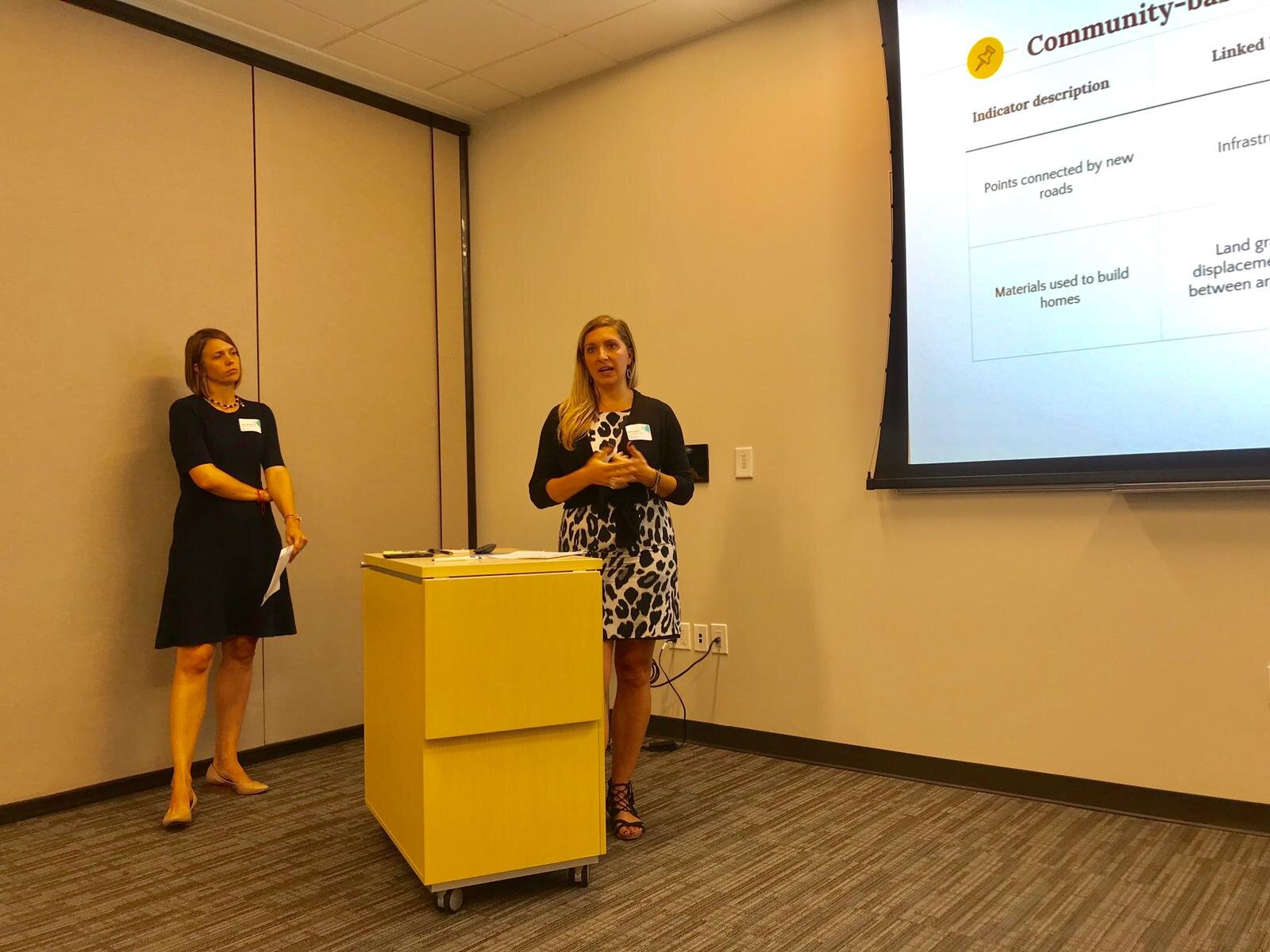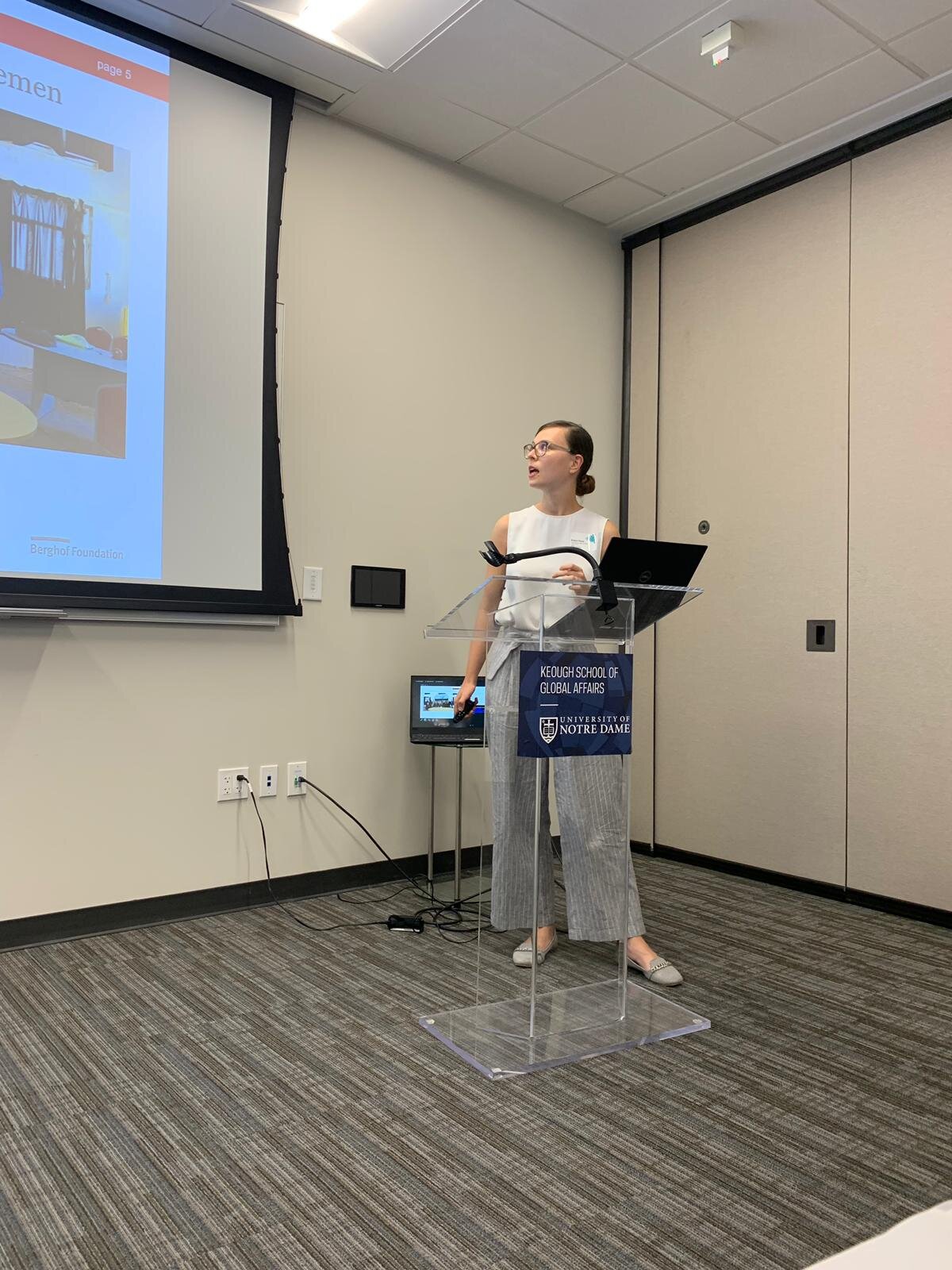Peacebuilding M&E Solutions Forum 2019
Location
The Peacebuilding Evaluation Consortium co-hosted it’s second annual Peacebuilding M&E Solutions Forum on Tuesday, 1 October 2019 with support from the Keough School of Global Affairs.
The event was held at the Keough School of Global Affairs, Washington, DC Office.
Sponsors
Presentations
If you weren’t able to attend the event, or simply want to check back into your favorite presentations, please see below all of the publicly available presentations.
Concurrent Session 1
Qualitative M&E Approaches
Conflict Mitigation & Recovery
Workshop
Presentation 1.1a – Outcome Harvesting + Attitude Change at the Grassroots by Rebecca Brown – Peace Catalyst International, Mariam Tadros – Tearfund, & Michelle Garred – Ripple Consulting
Presentation 1.2a – Using Case studies to speak about changes: the case of the Security Sector Reform in the Democratic Republic of Congo by Olivier Munguakonkwa – Search For Common Ground
Presentation 1.3a – Developing a Monitoring and Evaluation Framework for Communicating Peace by Kelsey Coolidge – War Prevention Initiative
Presentation 1.1b – The Missing Link: Enlisting the Community in Disaster Prevention and Recovery by Margee Ensign – Dickinson College
Presentation 1.2b – Outbreak Response in Eastern DRC and ensuring the response is conflict sensitive by Andrea Barboza & Marin O’Brien Belhoussein – Search For Common Ground
Presentation 1.3b – Measuring Societal Healing in Post-Conflict Rwanda by Marin Bryce – Never Again Rwanda
Workshop 1.1 – Geospatial Tools for Peace by Daniel Dufour – Geosurge & Rory Nealon – Creative Associates
Concurrent Session 2
M&E of Peacebuilding Outcomes
Complexity Aware & Targeted Monitoring
Workshops
Presentation 2.1a – Resiliency for Peacebuilding by Julia Roig & Alexa Fedynsky – PartnersGlobal
Presentation 2.2a – The Resilience Capacities Index: Measuring Resilience in Nigeria by Julie Carandang – Nuru International and Heath Prince – University of Texas, Austin
Presentation 2.3a – Triangulating on Peacebuilding Outcomes: A Case from Nigeria by Rebecca Wolfe – Mercy Corps
Presentation 2.1b – Agile and Integrated Monitoring Solutions by Evelyn Pauls – Berghof Foundation
Presentation 2.2b – Opening Spaces for Unintended Impacts: Complexity-Aware Monitoring Approaches to Increase Program Adaptation and Responsiveness in Conflict Environments by Sarah Kim – Dexis
Presentation 2.3b – M&E for Peace Process Programming by Caleb Pine – Department of State
Workshop 2.1c – Facilitating as a Peacebuilder by Daryn Cambridge – Training Resources Group, Inc.
Workshop 2.1d – Generating Fresh Insights to Improve Support to Youth in Conflict Settings: An engagement with the what vs. how dilemma using polarity mapping and management by Marie Pace – Independent Consultant & Elizabeth McClintock – Bridgeway Group
Concurrent Session 3
Alternative Methods of M&E
P/CVE & SBCC
Workshops
Presentation 3.1a – Values-Based M&E: Listening to Community Wisdom by Joan Marshall-Missiye – American Friends Service Committee
Presentation 3.2a – Determining Program Effectiveness for Whom? by Maria Selde – Search For Common Ground & Leslie Wingender – Humanity United
Presentation 3.3a – Monitoring and Evaluation in Arts-Based Peacebuilding by Armine Avetisyan – Imagining Together Platform for Arts, Culture and Conflict Transformation, Brandeis University
Presentation 3.1b – SBCC in CVE – Does it Work? Where and How? by Kyle Dietrich – Equal Access International & Todd Helmus – Rand Corporation
Presentation 3.2b – Evaluation of VE Programming in Non-Permissive environments – A Pakistan Case Study by Abid Rehman & Asfandyar Khan – DAI
Presentation 3.3b – Evaluating the impact of radio drama on social cohesion and peace-building in Myanmar by Alisdair Stuart – BBC Media Action
Workshop 3.1c – Building the evidence for building evidence bases: the what, why, and how of research on peacebuilding evaluation by Zach Tilton – Interdisciplinary PhD in Evaluation Program, Western Michigan University
Workshop 3.1d – Extracting Learning in Niger’s context through application of the Complexity-Aware Monitoring and Evaluation by Nigina Valentina, Mehreen Farooq, Rebecca Askin & Lucie Amadou – Counterpart International





